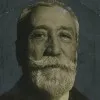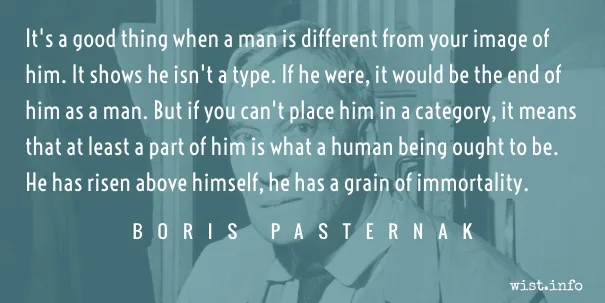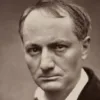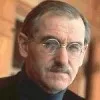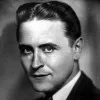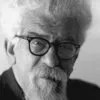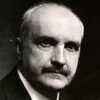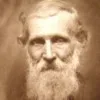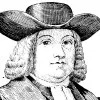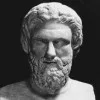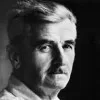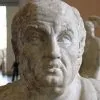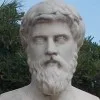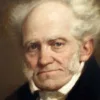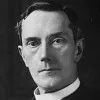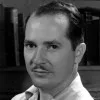When the final records shall be made clear, I think we shall be greatly amazed to see how alike in their frailties were men and women.
Minna Antrim (1861-1950) American epigrammatist, writer
Naked Truth and Veiled Allusions (1902)
(Source)
Quotations about:
human nature
Note not all quotations have been tagged, so Search may find additional quotes on this topic.
FALSTAFF:O powerful love,
that in some respects makes a beast a man, in
some other a man a beast!William Shakespeare (1564-1616) English dramatist and poet
Merry Wives of Windsor, Act 5, sc. 5, l. 4ff (5.5.4-6) (1597)
(Source)
ORESTES: Ye Gods! There’s no art to tell a decent man,
since generations work haphazardly.
I’ve encountered worthless men, the sons
of noble fathers; good men born from bad;
and I’ve seen hunger in a rich man’s mind,
a poor man’s body housing thoughts sublime.[ὈΡΈΣΤΗΣ: φεῦ:
οὐκ ἔστ᾽ ἀκριβὲς οὐδὲν εἰς εὐανδρίαν:
ἔχουσι γὰρ ταραγμὸν αἱ φύσεις βροτῶν.
ἤδη γὰρ εἶδον ἄνδρα γενναίου πατρὸς
τὸ μηδὲν ὄντα, χρηστά τ᾿ ἐκ κακῶν τέκνα,
λιμόν τ᾿ ἐν ἀνδρὸς πλουσίου φρονήματι,
γνώμην δὲ μεγάλην ἐν πένητι σώματι.]Euripides (485?-406? BC) Greek tragic dramatist
Electra [Ἠλέκτρα], l. 367ff (c. 420 BC) [tr. Wilson (2016)]
(Source)
(Source (Greek)). Alternate translations:There is no certain mark of generous souls:
For in the tempers of mankind prevails
A strange confusion. I have seen the son
Of a great father dwindle into nothing.
And virtuous children spring from wicked Sires;
Among the rich a mean contracted spirit
Have I discover'd, and the poor man's breast
Withi most exalted sentiments inspir'd.
[tr. Wodhull (1809)]Ah! there is no sure mark to recognize a man's worth; for human nature hath in it an element of confusion. For I have seen ere now the son of a noble sire prove himself a worthless knave, and virtuous children sprung from evil parents; likewise dearth in a rich man's spirit, and in a poor man's frame a mighty soul.
[tr. Coleridge (1891)]Alas! there is no sure mark of manliness; for the natures of mortals exhibit a confusion. For already have I seen a man who was naught sprung from a noble sire, and good children [sprung] from bad [fathers[,. and hunger in the spirit of a rich man, and a great mind in a poor body.
[tr. Buckley (1892)]Lo, there is no sure test for manhood’s worth:
For mortal natures are confusion-fraught. --
I have seen ere now a noble father’s son
Proved nothing-worth, seen good sons of ill sires,
Starved leanness in a rich man’s very soul,
And in a poor man’s body a great heart.
[tr. Way (1896)]How dark lies honour hid! And what turmoil
In all things human: sons of mighty men
Fallen to naught, and from ill seed again
Good fruit: yea, famine in the rich man's scroll
Writ deep, and in poor flesh a lordly soul.
[tr. Murray (1905)]Ah! There is no exact way to test a man's worth; for human nature has confusion in it. I have seen before now the son of a noble father worth nothing, and good children from evil parents; famine in a rich man's spirit, and a mighty soul in a poor man's body.
[tr. Coleridge (1938 ed.)]It is impossible to judge a man’s virtue with accuracy. There’s always great confusion in the nature of mortals. I, myself, have seen worthless children born of a virtuous man and from evil parents born brilliant children. I have seen a small, poor mind in a wealthy man and in the soul of a poor man, a great one.
[tr. Theodoridis (2006)]Well, nothing is precise
when it comes to how a man is valued --
men’s natures are confusing. Before this,
I’ve seen a man worth nothing, yet he had
a noble father; I’ve known evil parents
with outstanding children, seen famine
in a rich man’s mind and a great spirit
in a poor man’s body.
[tr. Johnston (2009)]I have known a man of a noble father who turns out
To be nothing while powerful men can rise from the low.
I have seen emptiness in a rich man’s thought
And great judgement in a poor person’s frame.
[tr. @sententiq (2020)]
We’re all capable of doing great things, and of doing bad things. We have the angels and the demons inside of us, and our lives are a succession of choices. Look at a figure like Woodrow Wilson, one of the most fascinating presidents in American history. He was despicable on racial issues. He was a Southern segregationist of the worst stripe, praising D.W. Griffith and The Birth of a Nation. He effectively was a Ku Klux Klan supporter. But in terms of foreign affairs, and the League of Nations, he had one of the great dreams of our time. The war to end all wars — we make fun of it now, but God, it was an idealistic dream. If he’d been able to achieve it, we’d be building statues of him a hundred feet high, and saying, “This was the greatest man in human history: This was the man who ended war.” He was a racist who tried to end war. Now, does one cancel out the other? Well, they don’t cancel out the other. You can’t make him a hero or a villain. He was both. And we’re all both.
George R. R. Martin (b. 1948) American author and screenwriter [George Raymond Richard Martin]
Interview (2014-04-23) by Mikal Gilmore, “The Rolling Stone Interview,” Rolling Stone
(Source)
Of a hundred people of each of the different leading religious sects, about the same proportion will be safe and pleasant persons to deal and to live with.
And e’en in this great throe of pain called Life
I find a rapture linked with each despair,
Well worth the price of anguish. I detect
More good than evil in humanity.
Love lights more fires than hate extinguishes,
And men grow better as the world grows old.Ella Wheeler Wilcox (1850-1919) American author and poet.
“Optimism,” ll. 9-14, Poems of Pleasure (1888)
(Source)
Both men and women partake of the same human nature, Huw. We both bleed when we’re wounded. That’s a poor, silly woman, true, but we can show plenty of poor, silly men. There are women as strong as any of us, and as able.
Ellis Peters (1913-1995) English writer, translator [pseud. of Edith Mary Pargeter, who also wrote under the names John Redfern, Jolyon Carr, Peter Benedict]
A Morbid Taste for Bones, ch. 9 [Cadfael] (1977)
(Source)
People, in forming their opinions of others, are usually lazy enough to go by whatever is most obvious or whatever chance remark they happen to hear. So the best policy is to dictate to others the opinion you want them to have of you.
Judith Martin (b. 1938) American author, journalist, etiquette expert [a.k.a. Miss Manners]
Style and Substance: A Comedy of Manners, ch. 7 (1986)
(Source)
“Man,” said Cadfael earnestly, “there are as holy persons outside orders as ever there are in, and not to trifle with truth, as good men out of the Christian church as most I’ve met within it. In the Holy Land I’ve known Saracens I’d trust before the common run of the crusaders, men honourable, generous and courteous, who would have scorned to haggle and jostle for place and trade as some of our allies did. Meet every man as you find him, for we’re all made the same under habit or robe or rags. Some better made than others, and some better cared for, but on the same pattern all.”
Ellis Peters (1913-1995) English writer, translator [pseud. of Edith Mary Pargeter, who also wrote under the names John Redfern, Jolyon Carr, Peter Benedict]
A Morbid Taste for Bones, ch. 6 (1977)
(Source)
To be a saint is the exception. To be a good man is the rule. Err, weaken and sin, but be among the good.
[Être un saint, c’est l’exception ; être un juste, c’est la règle. Errez, défaillez, péchez, mais soyez des justes.]Victor Hugo (1802-1885) French writer
Les Misérables, Part 1 “Fantine,” Book 1 “An Upright Man,” ch. 4 (1.1.4) (1862) [tr. Donougher (2013)]
(Source)
Part of the short summary of Bishop Myriel's teachings. (Source (French)). Alternate translations:To be a saint is the exception; to be upright is the rule. Err, falter, sin, but be upright.
[tr. Wilbour (1862); Wilbour / Fahnestock / MacAfee (1987)]To be a saint is the exception, to be a just man is the rule. Err, fail, sin, but be just.
[tr. Wraxall (1862)]To be a saint is the exception; to be an upright man is the rule. Err, fall, sin if you will, but be upright.
[tr. Hapgood (1887)]To be a saint is to be an exception; to be a true man is the rule. Err, fail, sin if you must, but be upright.
[tr. Denny (1976)]
Love is not all: it is not meat nor drink
Nor slumber nor a roof against the rain;
Nor yet a floating spar to men that sink
And rise and sink and rise and sink again;
Love can not fill the thickened lung with breath,
Nor clean the blood, nor set the fractured bone;
Yet many a man is making friends with death
Even as I speak, for lack of love alone.
ESMERALDA: Everyone says he’s sincere, but everyone isn’t sincere. If everyone was sincere who says he’s sincere there wouldn’t be half so many insincere ones in the world and there would be lots, lots, lots more really sincere ones!
I am satisfied that thare iz more weakness among men than malice.
[I am satisfied that there is more weakness among men than malice.]
Josh Billings (1818-1885) American humorist, aphorist [pseud. of Henry Wheeler Shaw]
Everybody’s Friend, Or; Josh Billing’s Encyclopedia and Proverbial Philosophy of Wit and Humor, ch. 155 “Affurisms: Ink Lings” (1874)
(Source)
Eternal torment some sour wits foretell
For those who follow wine and love too well, —
Fear not, for God were left alone in Heaven
If all the lovely lovers burnt in hell.Omar Khayyám (1048-1123) Persian poet, mathematician, philosopher, astronomer [عمر خیام]
Rubáiyát [رباعیات], Bod. # 127 [tr. Le Gallienne (1897)]
(Source)
I am fairly certain I am conflating two different quatrains below, Bodleian 127 (which mentions hypocrisy in the second line), and one not found in that manuscript (see the Whinfield translations). But both conclude with the sentiment that if lovers and drinkers are to be sent to Hell, then Heaven will be empty. Further discernment is left as an exercise for the reader.
This quatrain(s) is also unique in FitzGerald only offering a single go at translation, and that in just the 2nd ed.
Alternate translations:If but the Vine and Love-abjuring Band
Are in the Prophet's Paradise to stand,
Alack, I doubt the Prophet's Paradise
Were empty as the hollow of one's hand.
[tr. FitzGerald, 2nd Ed (1868), # 65; this does not appear in other editions before or after]Folk say that there is a hell. This is a vain error, in which no trust should be placed, for if there were a hell for lovers and for bibbers of wine, why heaven would be, from to-morrow morn, as empty as the hollow of my hand.
[tr. McCarthy (1879), # 131]If wine be an unpardonable sin,
God help Khayyam and his wine-bibbing kin!
If all poor drouthy souls be lodged elsewhere,
Heaven's plains must be as bare as maiden's chin.
[tr. Whinfield (1882), # 33]Drunkards are doomed to hell, so men declare,
Believe it not, 'tis but a foolish scare;
Heaven will be empty as this hand of mine,
If none who love good drink find entrance there.
[tr. Whinfield (1883), # 67]To drain the cup, to hover round the fair,
Can hypocritic arts with these compare?
If all who love and drink are going wrong,
There's many a wight of heaven may well despair!
[tr. Winfield (1883), #381]With Tales of future pains men threaten me,
They say there is a Hell in store for thee; --
Love, if there is a Hell for all like us,
Their Heaven as empty as my Palm will be.
[tr. Garner (1887), 1.19]To drink wine and consort with a company of the beautiful
is better than practising the hypocrisy of the zealot;
if the lover and the drunkard are doomed to hell,
then no one will see the face of heaven.
[tr. Heron-Allen (1898), # 127]Better to drink, with fair maids wander free.
Than in deceit to practice piety;
If sots and lovers all in Hell will be.
Then who would wish the face of Heaven to see?
[tr. Thompson (1906), # 425]Tis better here with Love and Wine to sit
Than to become the zealous hypocrite;
If all who love or drink are doom'd to Hell,
On whom shall Heaven bestow a benefit?
[tr. Talbot (1908), # 127]Drinking wine and wooing fair ones
Is a better thing than the hypocrisy of fanatics.
If all who drink wine were to go to Hell
No one would then behold Paradise.
[tr. Rosen (1928), # 256]Better to drink and dance with rosy fairs,
Than cheat the folk with doubtful pious wares;
Tho' drunkards, so they say, are doomed to hell,
To go to heaven with cheats who ever cares?
[tr. Tirtha (1941), # 10.88]They say lovers and drunkards go to hell,
A controversial dictum not easy to accept:
If the lover and drunkard are for hell,
Tomorrow Paradise will be empty.
[tr. Avery/Heath-Stubbs (1979), # 87]
Man has gradually become a fanciful animal, who has one more condition of existence to fulfil than any other animals: from time to time, man must think he knows why he exists; the human race cannot flourish without periodically renewed trust in life! Without believing in the reason in life!
[Der Mensch ist allmählich zu einem phantastischen Thiere geworden, welches eine Existenz -Bedingung mehr, als jedes andere Thier, zu erfüllen hat: der Mensch muss von Zeit zu Zeit glauben, zu wissen, warum er existirt, seine Gattung kann nicht gedeihen ohne ein periodisches Zutrauen zu dem Leben! Ohne Glauben an die Vernunft im Leben!]
Friedrich Nietzsche (1844-1900) German philosopher and poet
The Gay Science [Die fröhliche Wissenschaft], Book 1, § 1 (1882) [tr. Hill (2018)]
(Source)
Also known as La Gaya Scienza, The Joyful Wisdom, or The Joyous Science.
(Source (German)). Alternate translations:Man has gradually become a visionary animal, who has to fulfil one more condition of existence than the other animals: man must from time to time believe that he knows why he exists; his species cannot flourish without periodically confiding in life! Without the belief in reason in life!
[tr. Common (1911)]Gradually, man has become a fantastic animal that has to fulfil one more condition of existence than any other animal: man has to believe, to know, from time to time why he exists; his race cannot flourish without a periodic trust in life -- without faith in reason in life.
[tr. Kaufmann (1974)]Man has gradually become a fantastic animal that must fulfil one condition of existence more than any other animal: man must from time tot time believes he knows why he exists; his race cannot thrive without a periodic trust in life -- without faith in the reason in life!
[tr. Nauckhoff (2001)]
I hav larn’t one thing, bi grate experience, and that iz, I want as much watching az mi nabors do.
[I have learned one thing, by great experience, and that is, I want as much watching as my neighbors do.]Josh Billings (1818-1885) American humorist, aphorist [pseud. of Henry Wheeler Shaw]
Everybody’s Friend, Or; Josh Billing’s Encyclopedia and Proverbial Philosophy of Wit and Humor, ch. 155 “Affurisms: Ink Lings” (1874)
(Source)
In H. Montague, ed., Wit and Wisdom of Josh Billings (1913), this is given:I've learned one thing from experience -- that I'll bear watching about as much as some of my neighbors.
Benevolence is a natural instinct of the human mind. When A sees B in grievous distress, his conscience always urges him to entreat C to help him.
Sydney Smith (1771-1845) English clergyman, essayist, wit
(Attributed)
(Source)
In Hesketh Pearson, The Smith of Smiths, ch. 10 (1934).
You must remember this:
A kiss is just a kiss,
A sigh is just a sigh.
The fundamental things apply
As time goes by.Herman Hupfeld (1894-1951) American songwriter
“As Time Goes By” (1931)
(Source)
Hupfeld composed the music and lyrics for the song, which first appeared in the largely forgotten Broadway musical, Everybody's Welcome (1931). The song is more famous (and only remembered today) for its performance and use as a recurring theme in the film Casablanca (1942), where it was included over the objections of Max Steiner, who composed the rest of the music for the movie.
Many teenagers are tormented by terrors they deem private and personal. They do not know that their anxieties and doubts are universal.
Haim Ginott (1922-1973) Israeli-American school teacher, child psychologist, psychotherapist [b. Haim Ginzburg]
Between Parent and Teenager, ch. 2 “Rebellion and Response” (1969)
(Source)
Mankind loves misterys — a hole in the ground, excites more wonder than a star in the heavens.
[Mankind loves mysteries — a hole in the ground excites more wonder than a star in the heavens.]
Josh Billings (1818-1885) American humorist, aphorist [pseud. of Henry Wheeler Shaw]
Everybody’s Friend, Or; Josh Billing’s Encyclopedia and Proverbial Philosophy of Wit and Humor, ch. 148 “Affurisms: Ink Brats” (1874)
(Source)
Cleaned up and expanded in Wit and Wisdom of Josh Billings (1913) [ed. H. Montague]:Mankind in general love MYSTERIES. A hole in the ground generally excites more wonder and stirs up more curiosity than a strange star in the heavens.
Morality is the theory that every human act must be either right or wrong, and that 99 per cent. of them are wrong.
H. L. Mencken (1880-1956) American writer and journalist [Henry Lewis Mencken]
A Little Book in C Major, ch. 2, § 4 (1916)
(Source)
Variants:MORALITY. The theory that every human act must be either right or wrong, and that 99% of them are wrong.
[A Book of Burlesques, "The Jazz Webster" (1924)]Morality is the theory that every human act must be either right or wrong, and that 99% of them are wrong.
[Chrestomathy, ch. 30 "Sententiae" (1949)]
There are depths in man that go the length of lowest Hell, as there are heights that reach highest Heaven; — for are not both Heaven and Hell made out of him, made by him, everlasting Miracle and Mystery as he is?
Thomas Carlyle (1795-1881) Scottish essayist and historian
The French Revolution: A History, Part 3, Book 1, ch. 4 (3.1.4) (1837)
(Source)
Regarding the events of 2 September 1792, and the Commune-ordered massacres of prisoners in the Paris prisons.
This passage was popularized in a slightly paraphrased form in Tryon Edwards, ed., A Dictionary of Thoughts (1891):There are depths in man that go to the lowest hell, and heights that reach the highest heaven, for are not both heaven and hell made out of him, everlasting miracle and mystery that he is.
The Edwards version was, in turn, quoted by Martin Luther King, Jr. in his Detroit sermon "The Christian Doctrine of Man" (1958-02-12).
Man never gives up his desire for gain and aggrandizement; as death draws near, a prey to bile, with withered face and palsied legs, he will speak of my fortune, my situation.
[L’on ne se rend point sur le désir de posséder et de s’agrandir: la bile gagne, et la mort approche, qu’avec un visage flétri, et des jambes déjà faibles, l’on dit: ma fortune, mon établissement.]Jean de La Bruyère (1645-1696) French essayist, moralist
The Characters [Les Caractères], ch. 6 “Of Gifts of Fortune [Des Biens de Fortune],” § 51 (6.51) (1688) [tr. Stewart (1970)]
(Source)
(Source (French)). Alternate translations:There is no end to a Man's desire of growing rich and great; when the Cough seizes him, when Death approaches, his Face shrivel'd, and his Legs weak, he cries, My Fortune, my Establishment.
[Bullord ed. (1696)]There is no end to a Man's Desire of growing rich and great; the Cough seizes him, Death approaches, his Face is shrivel'd, and his Legs weak, yet he cries, My Fortune, my Preferment.
[Curll ed. (1713)]There is no end of desiring Riches and Grandeur; before the Rattle seizes him, and Death approaches, though his Face be shriveled, and his Legs totter, yet he is ever talking of, my Fortune, my Preferment.
[Browne ed. (1752)]All that a man wishes for is riches and grandeur; he falls very ill, and death draws near, and though his face be shrivelled and his legs totter, yet he is still talking of his fortune and his post.
[tr. Van Laun (1885)]
By some happy fortuity, man is a projector, a designer, a builder, a craftsman; it is among his most dependable joys to impose upon the flux that passes before him some mark of himself, aware though he always must be of the odds against him. His reward is not so much in the work as in its making; not so much in the prize as in the race. We may win when we lose, if we have done what we can; for by so doing we have made real at least some part of that finished product in whose fabrication we are most concerned: ourselves.
Learned Hand (1872-1961) American jurist
Speech (1955-01-29), “A Fanfare for Prometheus,” American Jewish Committee annual dinner, New York City
(Source)
Man is so made that he can only find relaxation from one kind of labor by taking up another.
Anatole France (1844-1924) French poet, journalist, novelist, Nobel Laureate [pseud. of Jaques-Anatole-François Thibault]
The Crime of Sylvestre Bonnard, Part 2, ch. 4 “The Little Saint-George,” “June 3” (1881)
(Source)
So, yes, Raymond, I do believe in evil. But the only evil I’ve seen, the only evil I believe in, wears a human face. I don’t know whether or not there’s a hell somewhere else, but I have seen an awful lot of people trying to create a homemade version right here.
J. Michael (Joe) Straczynski (b. 1954) American screenwriter, producer, author [a/k/a "JMS"]
Tribulations, “A Quiet Guy” [Susan Randall] (2005)
(Source)
What a lamentable cuss man iz, he pittys hiz nabors misfortunes, bi calling them judgments from heaven.
[What a lamentable cuss man is: he pities his neighbors’ misfortunes, by calling them judgments from heaven.]Josh Billings (1818-1885) American humorist, aphorist [pseud. of Henry Wheeler Shaw]
Everybody’s Friend, Or; Josh Billing’s Encyclopedia and Proverbial Philosophy of Wit and Humor, ch. 144 “Affurisms: Gnats” (1874)
(Source)
A human being, Hastings, cannot resist the opportunity to reveal himself and express his personality which conversation gives him. Every time he will give himself away.
The demand for certainty is one which is natural to man, but is nevertheless an intellectual vice.
Bertrand Russell (1872-1970) English mathematician and philosopher
“Philosophy for Laymen,” Universities Quarterly (1946-11)
(Source)
Reprinted in Unpopular Essays, ch. 2 (1951).
It’s a good thing when a man is different from your image of him. It shows he isn’t a type. If he were, it would be the end of him as a man. But if you can’t place him in a category, it means that at least a part of him is what a human being ought to be. He has risen above himself, he has a grain of immortality.
Boris Pasternak (1890-1960) Russian poet, novelist, and literary translator
Doctor Zhivago [До́ктор Жива́го], Part 2, ch. 9 “Varykino,” sec. 4 [Yuri] (1955) [tr. Hayward & Harari (1958), US ed.]
(Source)
Alternate translations:It’s a good thing when a man is different from your image of him. It shows he isn’t a type. If he were, it would be the end of him as a man. But if you can’t place him in a category, it means that at least a part of him is what a human being ought to be. He has a grain of immortality.
[tr. Hayward & Harari (1958), UK ed.]It’s good when a man deceives your expectations, when he doesn’t correspond to the preconceived notion of him. To belong to a type is the end of a man, his condemnation. If he doesn’t fall under any category, if he’s not representative, half of what’s demanded of him is there. He’s free of himself, he has achieved a grain of immortality.
[tr. Pevear & Volokhonsky (2010)]
We recognize too that beasts have sight, hearing, smell, taste, touch, often more keenly than we have. Or take strength, vigour, muscular power, swift and easy movement of the body, in all of which we excel some of them, equal some, and are surpassed by some. We are certainly in a common class with the beasts; every action of animal life is concerned with seeking bodily pleasure and avoiding pain.
[Videre autem atque audire, et olfactu, gustu, tactu corporalia sentire posse bestias, et acrius plerasque quam nos, cernimus et fatemur. Adde vires et valentiam firmitatemque membrorum, et celeritates facillimosque corporis motus, quibus omnibus quasdam earum superamus, quibusdam aequamur, a nonnullis etiam vincimur. Genus tamen ipsum rerum est nobis certe commune cum belluis: jam vero appetere voluptates corporis, et vitare molestias, ferinae vitae omnis actio est.]
Augustine of Hippo (354-430) Christian church father, philosopher, saint [b. Aurelius Augustinus]
On Free Choice of the Will [De Libero Arbitrio Voluntatis], Book 1, ch. 8 / sec. 18 (1.8.18) (AD 288) [tr. Mark Pontifex (1955)]
(Source)
(Source (Latin)). Alternate translations:Furthermore, beasts see, hear, and can perceive corporeal things by touch, taste, and smell more keenly than we. Add to this energy, power, strength of limb, speed, and agility of bodily motion. In all of these faculties we excel some, equal others, and to some are inferior. Things of this sort we clearly share with beasts. Indeed, to seek the pleasures of the body and to avoid harm constitute the entire activity of a beast's life.
[tr. Benjamin/Hackstaff (1964), ch. 8, sec. 62]We recognize and acknowledge that animals can see and hear, and can sense material objects by touch, taste, and smell, often better than we can. Consider also strength, health, and bodily vigor, ease and swiftness of motion. In all of these respects we are superior to some animals, equal to others, and inferior to quite a few. Yet we have these sorts of traits in common with animals, though life of the lower animals consists entirely in the pursuit of physical pleasures and the avoidance of pains.
[tr. Williams (1993)]
A toddling little girl is a centre of common feeling which makes the most dissimilar people understand each other.
George Eliot (1819-1880) English novelist [pseud. of Mary Ann Evans]
Scenes of Clerical Life, “Janet’s Repentance,” ch. 8 (1857)
(Source)
Man seems to be a rickety poor sort of a thing, any way you take him; a kind of British Museum of infirmities and inferiorities. He is always undergoing repairs. A machine that was as unreliable as he is would have no market.
Mark Twain (1835-1910) American writer [pseud. of Samuel Clemens]
Letters from the Earth, “The Damned Human Race,” sec. 5 “The Lowest Animal” (1962) [ed. DeVoto]
(Source)
The gift of imagination is by no means an exclusive property of the artist; it is a gift we all share; to some degree or other all of us, all of you, are endowed with the powers of fantasy.
Leonard Bernstein (1918-1990) American conductor, composer, author, music lecturer, pianist
Commencement Speech, Johns Hopkins University (1980-05-30)
(Source)
Collected in Findings: Fifty Years of Meditations on Music, Part 4 (1982).
CAMILLO:My gracious lord,
I may be negligent, foolish, and fearful.
In every one of these no man is free,
But that his negligence, his folly, fear,
Among the infinite doings of the world,
Sometime puts forth. In your affairs, my lord,
If ever I were willful-negligent,
It was my folly; if industriously
I played the fool, it was my negligence,
Not weighing well the end; if ever fearful
To do a thing where I the issue doubted,
Whereof the execution did cry out
Against the non-performance, ’twas a fear
Which oft infects the wisest. These, my lord,
Are such allowed infirmities that honesty
Is never free of.William Shakespeare (1564-1616) English dramatist and poet
Winter’s Tale, Act 1, sc. 2, l. 310ff (1.2.310-325) (1611)
(Source)
What Nature wants, commodious Gold bestows,
‘Tis thus we eat the bread another sows:
But how unequal it bestows, observe,
‘Tis thus we riot, while who sow it, starve.
What Nature wants (a phrase I much distrust)
Extends to Luxury, extends to Lust;
And if we count among the Needs of life
Another’s Toil, why not another’s Wife?
Useful, we grant, it serves what life requires,
But dreadful too, the dark Assassin hires:
Trade it may help, Society extend;
But lures the Pyrate, and corrupts the Friend:
It raises Armies in a nation’s aid,
But bribes a Senate, and the Land’s betray’d.Alexander Pope (1688-1744) English poet
“An Epistle to Allen, Lord Bathurst: Of the Use of Riches” (1733), Moral Essays, Epistle 3 (1735)
(Source)
All wines don’t turn sour when they get old, and neither do all men or all personalities. I approve of sternness in the old, but a sternness that, like other things, is kept within limits; under no circumstances do I approve of bad temper.
[Ut enim non omne vinum, sic non omnis natura vetustate coacescit. Severitatem in senectute probo, sed eam, sicut alia, modicam; acerbitatem nullo modo.]Marcus Tullius Cicero (106-43 BC) Roman orator, statesman, philosopher
De Senectute [Cato Maior; On Old Age], ch. 18 / sec. 65 (18.65) (44 BC) [tr. Copley (1967)]
(Source)
(Source (Latin)). Alternate translations:For as every wyne long kept and olde waxith not eagre of his owne propre nature, right so all mankynde is not aygre fell cruell ungracious chargyng nor inportune in olde age of their owne kynde though some men among many be fonde of that condicion. I approve & preyse in olde age the man which hath severitee & stidfast abydyng in hym. Seuerite is contynuance & perseverance of oon maner of lyvyng as wele in the thyngys within as in theym withoute. But I approve nat that in an olde man be egrenesse nor hardnesse & sharpnesse of maners of condicions.
[tr. Worcester/Worcester/Scrope (1481)]For even as every wine being old and standing long is not converted into vineigre, so likewise is not every age sour, eigre, and unpleasant. Severity and sternness in old age I well allow and commend, so that a moderate mean therein (as in all other things) be observed; but bitterness and rigorous dealing I can in no wise brook nor away withal.
[tr. Newton (1569)]For as all wines do not grow soure and tart in continuance, so not all age. I like severity in an old man, but not bitternesse.
[tr. Austin (1648), ch. 19]Our nature here, is not unlike our wine,
Some sorts, when old, continue brisk, and fine.
So Age's gravity may seem severe,
But nothing harsh, or bitter ought to appear.
[tr. Denham (1669)]In short, as it fares with Wines, so it does with Old Men: all are not equally apt to grow sour with Age. A serious and moderately grave Deportment well become us, but nothing of an austere Severity.
[tr. Hemming (1716)]Thus it is, for as all Wines are not prick'd by Age, so neither is Human Life sower'd by Old Age; a Severity I approve of in Old Men, but with Moderation; Bitterness by no means.
[tr. J. D. (1744)]Some Wines sour with Age, while others grow better and richer. A Gravity with some Severity is to be allowed; but by no means Ill nature.
[tr. Logan (1744)]As it is not every kind of wine, so neither is it every sort of temper, that turns sour by age. But I must observe at the same time there is a certain gravity of deportment extremely becoming in advanced years, and which, as in other virtues, when it preserves its proper bounds, and does not degenerate into an acerbity of manners, I very much approve.
[tr. Melmoth (1773)]For, as not every wine, so not every life, grows sour by age. Strictness in old age, I approve; but that, even as other things, in moderate degree: bitterness I nowise approve.
[Cornish Bros. ed. (1847)]Neither every wine nor every life turns to vinegar with age.
[ed. Harbottle (1906)]For as it is not every wine, so it is not every man's life, that grows sour from old age. I approve of gravity in old age, but this in a moderate degree, like everything else; harshness by no means.
[tr. Edmonds (1874)]For as it is not wine of every vintage, so it is not every temper that grows sour with age. I approve of gravity in old age, so it be not excessive; for moderation in all things is becoming: but for bitterness I have no tolerance.
[tr. Peabody (1884)]The fact is that, just as it is not every wine, so it is not every life, that turns sour from keeping. Serious gravity I approve of in old age, but, as in other things, it must be within due limits: bitterness I can in no case approve.
[tr. Shuckburgh (1895)]Not every wine grows sour by growing old.
Severity in age is well enough:
But not too much, and naught of bitterness.
[tr. Allison (1916)]As it is not every wine, so it is not every disposition, that grows sour with age. I approve of some austerity in the old, but I want it, as I do everything else, in moderation. Sourness of temper I like not at all.
[tr. Falconer (1923)]Human nature is like wine: it does not invariably sour just because it is old. Some old men seem very stern, and rightly so -- although there must be, as I always say, moderation in all things. There is never any reason for ill temper.
[tr. Cobbold (2012)]Certainly neither all wines go sour
Nor do all men because of agedness.
I approve of old men’s calm severity,
But I don’t put up with those who are dour.
[tr. Bozzi (2015)]The truth is that a person's character, like wine, does not necessarily grow sour with age. Austerity in old age is proper enough, but like everything else it should be in moderation. Sourness of disposition is never a virtue.
[tr. Freeman (2016)]
Every human being, like every animal, wants to live in what is felt to be a safe environment — an environment where you won’t be exposed to unexpected peril. Now, when a man tells you that something you’ve always believed was in fact not true, it gives you a frightful shock and you think, “Oh! I don’t know where I am. When I think I’m planting my foot upon the ground, perhaps I’m not.” And you get into a terror.
Bertrand Russell (1872-1970) English mathematician and philosopher
Interview by Woodrow Wyatt, BBC TV (1959)
On resistance to scientific discovery.
Collected in Bertrand Russell's BBC Interviews (1959) [UK] and Bertrand Russell Speaks His Mind (1960) [US]. Reprinted (abridged) in The Humanist (1982-11/12), and in Russell Society News, #37 (1983-02).
Well, it is part of our emotional apparatus that we are liable to both love and hate, and we like to exercise them. We love our compatriots and we hate foreigners. Of course, we love our compatriots only when we’re thinking of foreigners. When we’ve forgotten foreigners, we don’t love them so much.
Bertrand Russell (1872-1970) English mathematician and philosopher
Interview by Woodrow Wyatt, BBC TV (1959)
Collected in Bertrand Russell's BBC Interviews (1959) [UK] and Bertrand Russell Speaks His Mind (1960) [US]. Reprinted (abridged) in The Humanist (1982-11/12), and in Russell Society News, #37 (1983-02).
Why is it that we remember with effort but forget without effort? That we learn with effort but stay ignorant without effort? That we are active with effort, and lazy without effort?
[Quid est enim, quod cum labore meminimus, sine labore obliuiscimur; cum labore discimus, sine labore nescimus; cum labore strenui, sine labore inertes sumus?]Augustine of Hippo (354-430) Christian church father, philosopher, saint [b. Aurelius Augustinus]
City of God [De Civitate Dei], Book 22, ch. 22 (22.22) (AD 412-416) [tr. Green (Loeb) (1972)]
(Source)
(Source (Latin)). Alternate translations:What is our labour to remember things, our labour to learn, and our ignorance without this labour? our agility got by toil, and our dullness if we neglect it?
[tr. Healey (1610)]For why is it that we remember with difficulty, and without difficulty forget? learn with difficulty, and without difficulty remain ignorant? are diligent with difficulty, and without difficulty are indolent?
[tr. Dods (1871)]How difficult it is to remember, how easy to forget; how hard to learn and how easy to be ignorant; how difficult to make an effort and how easy to be lazy.
[tr. Walsh/Honan (1954)]How is it that what we learn with toil we forget with ease? that it is hard to learn, but easy to be in ignorance? That activity goes against the grain, while indolence is second nature?
[tr. Bettenson (1972)]Why is it that we remember with such difficulty, but forget so easily? Why is it that we learn with such difficulty, yet so easily remain ignorant? Why is it that we are vigorous with such difficulty, yet so easily inert?
[tr. Dyson (1998)]
A person who lacks the means, within himself, to live a good and happy life will find any period of his existence wearisome. But rely for life’s blessings on your own resources, and you will not take a gloomy view of any of the inevitable consequences of nature’s laws. Everyone hopes to attain an advanced age; yet when it comes they all complain! So foolishly inconsistent and perverse can people be.
[Quibus enim nihil est in ipsis opis ad bene beateque vivendum, eis omnis aetas gravis est; qui autem omnia bona a se ipsi petunt, eis nihil malum potest videri quod naturae necessitas adferat. Quo in genere est in primis senectus, quam ut adipiscantur omnes optant, eandem accusant adeptam; tanta est stultitiae inconstantia atque perversitas.]
Marcus Tullius Cicero (106-43 BC) Roman orator, statesman, philosopher
De Senectute [Cato Maior; On Old Age], ch. 2 / sec. 4 (2.4) [Cato] (44 BC) [tr. Grant (1960, 1971 ed.)]
(Source)
(Source (Latin)). Alternate translations:For eche of thies ages which men name Childhode, adolescence, yongth, virilite, manhode & olde age semyn to be hevy & noxous to men the which in them silf have nothyng that may help & socoure them to lyve goodly & blessidly as bee, the which excercisen sciences & vertues & good werkis, but as to suche men which sechyn & fyndyn in themsilf alle the goods & thyngis which belongyn wele & blessidly for to lyve, ther is nothyng that comyth to them in age by the defaute of nature that may seme unto them evyll nor noxous. It is certayne that olde age is suche that it serchith & fyndyth in it self all the goodnesses whch longen to live wel & blyssidly, and yet is olde age such that alle men desyre to come untyll hit, And never the lesse the mutablenes & evyl dysposicion of men it is so grete in oure dayes that they blamyn olde age whan they be come therto by cause that then they may not use delectacions.
[tr. Worcester/Worcester/Scrope (1481)]For they that have no power, pith of wit, help, way nor virtue in themselves to conduct and bring them to a good and blessed life, unto such as these be, all their age is cumbersome and unpleasant. But unto such as lead their lives virtuously, measuring all their actions by the square of reason, and have their minds with all good gifts of grace beautified and garnished, there is nothing thought nor deemed evil that cometh by necessity of nature. Of the which sort old age is principally to be considered, unto which all men wish to arrive, and yet when they have their desire, they accuse it as painful, sickly, unpleasant and tedious, such is the brainless unconstancy, foolish sottage, and perverse overthwartness of wayward people.
[tr. Newton (1569)]For that age is only grievous to those that have no taste of wisdome and learning in themselves to make them live happily: but to them which see all perfection and consolation from their own experience, nothing can seem heavy which the necessity of nature bringeth: of which sort old age is chief, which all desire to obtain, and blame being obtained; such is their unconstancy, foolishnesse and perversity.
[tr. Austin (1648)]For to those who have nothing within themselves capable of making Life happy, and satisfactory, no wonder if every Stage of it should prove irksome, and vexatious: but, to those who derive all their satisfaction from an easy mind, nothing can seem grievous and tormenting, that proceeds from the irreversible Laws of Nature; which certainly is the case of Old Age,, whereunto though 'tis the earnest desire of all men to arrive, yet such is their unaccountable folly, and perverseness, that they are never more uneasy than when they have arrived at it.
[tr. Hemming (1716)]All Ages are grievous to those who have not in themselves the Means of living Holy and Happy; but those who expect all Happiness from their own Virtues, don't look up on the Decay of Nature as a Hardship, whereof Old Age is the chiefest, and which all desire to attain to; but is no sooner tasted than declaim'd against. Such are the Effects of Inconstancy, Folly, and the Want of Wisdom.
[tr. J. D. (1744)]For know this, that those who have no Aid or Support within themselves, to render their Lives easy, will find every State irksome: While such as are convinced, they must owe their Happiness to themselves, and that if they cannot find it in their own Breasts, they will never meet with it from abroad; will never consider any thing as an Evil, that is but a necessary Effect of the established Order of Nature; which Old Age most undoubtedly is. 'Tis certainly strange, that while all Men hope they may live to attain it, any should find Fault with it, when it comes their Share. Yet such is the Levity, Folly, and Perverseness of Mankind, that we see there is nothing more common.
[tr. Logan (1744)]Those indeed who have no internal resource of happiness, will find themselves uneasy in every stage of human life: but to him who is accustomed to derive all his felicity from within himself, no state will appear as a real evil into which he is conducted by the common and regular course of nature. Now this is peculiarly the case with respect to old age : yet such is the inconsistency of human folly, that the very period which at a distance is every man's warmest wish to attain, no sooner arrives than it is equally the object of his lamentations.
[tr. Melmoth (1773)]For to those that have nought of resource in themselves for living well and happily, every stage of life is burthensome; while to those that seek all their goods from themselves, nothing can seem an evil, which the law of Nature may bring them. In which class foremost stands old age, which all desire to attain, but arraign the same when attained; so great is the inconsistency and perverseness of folly.
[Cornish Bros. ed. (1847)]For to those who have no resource in themselves for living well and happily, every age is burdensome; but to those who seek all good things from themselves, nothing can appear evil which the necessity of nature entails; in which class particularly is old age, which all men wish to attain, and yet they complain of it when they have attained it; so great is the inconsistency and waywardness of folly.
[tr. Edmonds (1874)]For those who have in themselves no resources for a good and happy life, every period of life is burdensome; but to those who seek all goods from within, nothing which comes in the course of nature can seem evil. Under this head a place especially belongs to old age, which all desire to attain, yet find fault with it when they have reached it. Such is the inconsistency and perverseness of human folly.
[tr. Peabody (1884)]But those who look for all happiness from within can never think anything bad which nature makes inevitable. In that category before anything else comes old age, to which all wish to attain, and at which all grumble when attained. Such is Folly's inconsistency and unreasonableness!
[tr. Shuckburgh (1895)]Of course
To those who've no resources in themselves
For a good and happy life, why, every age
Is hard to bear: but those who have within
All that is needful for a life well-spent,
Can never find misfortune in the lot
That nature's laws impose. And one such lot
Is that old age must come to each and all,
Old age so fondly hoped for, when it comes,
So Oft found to be irksome. Such, alas!
Is Folly's want of reason and resolve.
[tr. Allison (1916)]For to those who have not the means within themselves of a virtuous and happy life every age is burdensome; and, on the other hand, to those who seek all good from themselves nothing can seem evil that the laws of nature inevitably impose. To this class old age especially belongs, which all men wish to attain and yet reproach when attained; such is the inconsistency and perversity of Folly!
[tr. Falconer (1923)]People, you see, who have no inner resources for living the good and happy life, find every age a burden. But men who seek all good from within themselves are simply unable to view as evil anything that comes about through nature’s law. Now old age, as much as anything else in this world, is such a thing. All men hope and pray to attain it; once they have attained it, they start finding fault with it.
[tr. Copley (1967)]Some people just do not possess the optimism that would allow them to live contentedly under any circumstances: for them every stage of life is a burden. But if only they expected nothing but good for themselves, nothing that the natural passage of time brought them could seem bad. This is especially true of old age. Everybody wants to live for a long time, but when they have attained their goal, they grumble. It makes no sense -- but that’s what life is: perverse and inconsistent.
[tr. Cobbold (2012)]Someone who doesn't have much in the way of inner resources will find all stages of life irksome, but someone whose character is in order will accept what nature brings and not complain about something perfectly natural, calling it evil. There is much nonsense bandied about old age, something which everyone wishes to reach, but which most complain about once they get there. That seems more than slightly inconsistent and perverse, doesn't it?
[tr. Gerberding (2014)]They find every age oppressive, of course,
Who in their inner selves have no resource
To live an easy life in happiness,
But they who in themselves only find
Their own contentment and peace of mind
See no harm in nature’s due process
Whose termination inevitably
May lead to that state of senility
To which they keenly lay claim,
But once attained rather foolishly,
With malice and incongruity,
Promptly find reasons to blame.
[tr. Bozzi (2015)]Those who lack within themselves the means for living a blessed and happy life will find any age painful. But for those who seek good things within themselves, nothing imposed on them by nature will seem troublesome. Growing older is a prime example of this. Everyone hopes to reach old age, but when it comes, most of us complain about it. People can be so foolish and inconsistent.
[tr. Freeman (2016)]Every age is burdensome to those who have no means of living well and happily. But to those who seek all good from themselves, nothing which the necessity of nature offers can appear bad. Old age is a prime example of this sort of thing -- everyone wishes to attain it, but they always complain about it once it is attained. Such is the inconstancy and perversity of stupidity.
[tr. Robinson [@sentantiq] (2017)]
Men will readily enough avow cruelty, passion, even avarice, but never cowardice, because such an admission would bring them, among savages and even in civilized society, into mortal danger.
[Les hommes avouent volontiers la cruauté, la colère, l’avarice même, mais jamais la lâcheté, parce que cet aveu les mettrait, chez les sauvages et même dans une société polie, en un danger mortel.]
Anatole France (1844-1924) French poet, journalist, novelist, Nobel Laureate [pseud. of Jaques-Anatole-François Thibault]
The Gods Will Have Blood [Les Dieux Ont Soif], ch. 19 [Brotteaux] (1912) [tr. Allinson (1913), The Gods Are Athirst]
(Source)
(Source (French)). Alternate translation:Men willingly post of their cruelty, their anger, their greed even, but never of their cowardice, because to admit such a thing would put them, whether in a primitive or a civilized society, in mortal peril.
[tr. Davies (1979)]
We hear only half of what is said to us, understand only half of that, believe only half of that, and remember only half of that.
Mignon McLaughlin (1913-1983) American journalist and author
The Neurotic’s Notebook, ch. 5 (1963)
(Source)
This life of ours — if a life so full of such great ills can properly be called a life — bears witness to the fact that, from its very start, the race of mortal men has been a race condemned. Think, first, of that dreadful abyss of ignorance from which all error flows and so engulfs the sons of Adam in a darksome pool that no one can escape without the toll of toils and tears and fears. Then, take our very love for all those things that prove so vain and poisonous and breed so many heartaches, troubles, griefs, and fears; such insane joys in discord, strife, and war; such wrath and plots of enemies, deceivers, sycophants; such fraud and theft and robbery; such perfidy and pride, envy and ambition, homicide and murder, cruelty and savagery, lawlessness and lust; all the shameless passions of the impure — fornication and adultery, incest and unnatural sins, rape and countless other uncleannesses too nasty to be mentioned; the sins against religion — sacrilege and heresy, blasphemy and perjury; the iniquities against our neighbors — calumnies and cheating, lies and false witness, violence to persons and property; the injustices of the courts and the innumerable other miseries and maladies that fill the world, yet escape attention.
It is true that it is wicked men who do such things, but the source of all such sins is that radical canker in the mind and will that is innate in every son of Adam. For, our infancy proves with what ignorance of the truth man enters upon life, and adolescence makes clear to all the world how full we are of folly and concupiscence. In fact, if anyone were left to live as he pleased and to do what he desired, he would go through practically the whole gamut of lawlessnesses and lust — those which I have just listed and, perhaps, others that I refrained from mentioning.[Nam quod ad primam originem pertinet, omnem mortalium progeniem fuisse damnatam, haec ipsa uita, si uita dicenda est, tot et tantis malis plena testatur. Quid enim aliud indicat horrenda quaedam profunditas ignorantiae, ex qua omnis error existit, qui omnes filios Adam tenebroso quodam sinu suscepit, ut homo ab illo liberari sine labore dolore timore non possit? Quid amor ipse tot rerum uanarum atque noxiarum et ex hoc mordaces curae, perturbationes, maerores, formidines, insana gaudia, discordiae, lites, bella, insidiae, iracundiae, inimicitiae, fallacia, adulatio, fraus, furtum, rapina, perfidia, superbia, ambitio, inuidentia, homicidia, parricidia, crudelitas, saeuitia, nequitia, luxuria, petulantia, inpudentia, inpudicitia, fornicationes, adulteria, incesta et contra naturam utriusque sexus tot stupra atque inmunditiae, quas turpe est etiam dicere, sacrilegia, haereses, blasphemiae, periuria, oppressiones innocentium, calumniae, circumuentiones, praeuaricationes, falsa testimonia, iniqua iudicia, uiolentiae, latrocinia et quidquid talium malorum in mentem non uenit et tamen de uita ista hominum non recedit? Verum haec hominum sunt malorum, ab illa tamen erroris et peruersi amoris radice uenientia, cum qua omnis filius Adam nascitur. Nam quis ignorat cum quanta ignorantia ueritatis, quae iam in infantibus manifesta est, et cum quanta abundantia uanae cupiditatis, quae in pueris incipit apparere, homo ueniat in hanc uitam, ita ut, si dimittatur uiuere ut uelit et facere quidquid uelit, in haec facinora et flagitia, quae commemoraui et quae commemorare non potui, uel cuncta uel multa perueniat?]
Augustine of Hippo (354-430) Christian church father, philosopher, saint [b. Aurelius Augustinus]
City of God [De Civitate Dei], Book 22, ch. 22 (22.22) (AD 412-416) [tr. Walsh/Honan (1954)]
(Source)
(Source (Latin)). Alternate translations:Concerning man’s first origin, our present life (if such a miserable estate can be called a life) does sufficiently prove that all his children were condemned in him. What else does that horrid gulf of ignorance confirm, whence all error has birth, and wherein all the sons of Adam are so deeply drenched, that none can be freed without toil, fear, and sorrow? What else does our love of vanities affirm, whence there arises such a tempest of cares, sorrows, repinings, fears, mad exultations, discords, altercations, wars, treasons, furies, hates, deceits, flatteries, thefts, rapines, perjuries, pride, ambition, envy, murder, parricide, cruelty, villainy, luxury, impudence, unchastity, fornications, adulteries, incests, several sorts of sins against nature (filthy even to be named), sacrilege, heresy, blasphemy, oppression, calumnies, circumventions, deceits, false witnesses, false judgments, violence, robberies, and suchlike out of my remembrance to reckon, but not excluded from the life of man? All these evils are belonging to man, and arise out of the root of that error and perverse affection which every son of Adam brings into the world with him. For who does not know in what a mist of ignorance (as we see in infants) and with what a crew of vain desires (as we see in boys) all mankind enters this world, so that if man were left unto his own election, he would fall into most of the aforesaid mischiefs?
[tr. Healey (1610)]That the whole human race has been condemned in its first origin, this life itself, if life it is to be called, bears witness by the host of cruel ills with which it is filled. Is not this proved by the profound and dreadful ignorance which produces all the errors that enfold the children of Adam, and from which no man can be delivered without toil, pain, and fear? Is it not proved by his love of so many vain and hurtful things, which produces gnawing cares, disquiet, griefs, fears, wild joys, quarrels, lawsuits, wars, treasons, angers, hatreds, deceit, flattery, fraud, theft, robbery, perfidy, pride, ambition, envy, murders, parricides, cruelty, ferocity, wickedness, luxury, insolence, impudence, shamelessness, fornications, adulteries, incests, and the numberless uncleannesses and unnatural acts of both sexes, which it is shameful so much as to mention; sacrileges, heresies, blasphemies, perjuries, oppression of the innocent, calumnies, plots, falsehoods, false witnessings, unrighteous judgments, violent deeds, plunderings, and whatever similar wickedness has found its way into the lives of men, though it cannot find its way into the conception of pure minds? These are indeed the crimes of wicked men, yet they spring from that root of error and misplaced love which is born with every son of Adam. For who is there that has not observed with what profound ignorance, manifesting itself even in infancy, and with what superfluity of foolish desires, beginning to appear in boyhood, man comes into this life, so that, were he left to live as he pleased, and to do whatever he pleased, he would plunge into all, or certainly into many of those crimes and iniquities which I mentioned, and could not mention?
[tr. Dods (1871)]This very life, if life it can be called, pregnant with so many dire evils, bears witness that from its very beginning all the progeny of mankind was damned. For what else is the meaning of the dreadful depth of ignorance, from which all error arises, which has taken to its bosom, so to speak, all the sons of Adam in its dark embrace, so that man cannot be freed from that embrace without toil, pain and fear? What is the meaning of the love of so many vain and harmful things, from which come gnawing cares, passions, griefs, fears, mad joys, discords, strifes, wars, plots, wraths, enmities, deceits, flattery, fraud, theft, robbery, perfidy, pride, ambition, envy, murder, parricide, cruelty, ferocity, vileness, riotous living, disorderly conduct, impudence, shamelessness, fornication, adultery, incest and so many outrageous and foul forms of unnatural vice in each sex which it is indecent even to mention, sacrilege, heresies, blasphemies, perjuries, oppressions of the innocent, calumnies, deceptions, duplicities, false witness, unjust verdicts, violence, brigandage and all the other evils which come not to mind, but still do not pass from this life of men? Yes, these are misdeeds of bad men, for they spring from that root of error and perverse love with which every son of Adam is born. Indeed, who does not know with what ignorance of truth, manifest already in infancy, and with what excess of vain desire, which begins to appear in childhood, man comes into this life, so that if he is allowed to live and do as he likes, he falls into all, or many, of these misdeeds and crimes which I have rehearsed, and others which I was unable to rehearse?
[tr. Green (Loeb) (1972)]As for that first origin of mankind, this present life of ours (if a state full of so much grievous misery can be called a life) is evidence that all the mortal descendants of the first man came under condemnation. Such is the clear evidence of that terrifying abyss of ignorance, as it may be called, which is the source of all error, in whose gloomy depths all the sons of Adam are engulfed, so that man cannot be rescued from it without toil, sorrow and fear. What else is the message of all the evils of humanity? The love of futile and harmful satisfactions, with its results: carking anxieties, agitations of mind, disappointments, fears, frenzied joys, quarrels, disputes, wars, treacheries, hatreds, enmities, deceits, flattery, fraud, theft, rapine, perfidy, pride, ambition, envy, murder, parricide, cruelty, savagery, villainy, lust, promiscuity, indecency, unchastity, fornication, adultery, incest, unnatural vice in men and women (disgusting acts too filthy to be named), sacrilege, collusion, false witness, unjust judgement, violence, robbery, and all other such evils which do not immediately come to mind, although they never cease to beset this life of man -- all these evils belong to man in his wickedness, and they all spring from that root of error and perverted affection which every son of Adam brings with him at his birth. For who is not aware of the vast ignorance of the truth (which is abundantly seen in infancy) and the wealth of futile desires (which begins to be obvious in boyhood) which accompanies a man on his entrance into this world, so that if man were left to live as he chose and act as he pleased he would fall into all, or most, of those crimes and sins which I have mentioned -- and others which I was not able to mention.
[tr. Bettenson (1972)]This life itself, if it is to be called a life, attests, by the many great evils with which it is filled, that the whole mortal progeny of the first man stands condemned. What could show this more clearly than that dreadful and profound ignorance from which springs all the error which imprisons the sons of Adam in a dark place from which no man can be delivered without toil, pain and fear? Is this not proved by his love of so many vain and harmful things, from which come gnawing cares, disturbances, griefs, fears, insane joys, discords, litigation, wars, treasons, angers, hatreds, falsehood, flattery, fraud, theft, rapine, perfidy, pride, ambition, envy, homicides, parricides, cruelty, ferocity, wickedness, luxury, insolence, immodesty, unchastity, fornications, adulteries, incests, and so many other impure and unnatural acts of both sexes of which it is shameful even to speak; sacrileges, heresies, blasphemies, perjuries, oppression of the innocent, slanders, plots, prevarications, false witness, unrighteous judgments, acts of violence, robberies, and other such evils which do not immediately come to mind, but which are never far away from men in this life? Truly, these are the crimes of wicked men; yet they come forth from that root of error and perverse love which is born with every son of Adam. For who does not know how great is our ignorance of the truth, manifesting itself even in infancy? Who does not know with what an abundance of vain desires, beginning to appear in boyhood, a man comes into this life? So true is this that, if a man were left to live as he wished and do whatever he liked, he would fall into all, or certainly into many, of those crimes and iniquities which I mentioned and could not mention.
[tr. Dyson (1998)]
Cowardice or Bravery is never racial. You find both in every Country. No country has a monopoly on Bravery; great deeds of heroism is liable to break out in the most unexpected places.
Will Rogers (1879-1935) American humorist
“Letter of a Self-Made Diplomat to His President,” Saturday Evening Post (1932-03-12)
Collected in More Letters of a Self-Made Diplomat to His President (1928) [ed. Steven Gragert].
The human comedy can keep amusing you, but only if you keep your distance.
Mignon McLaughlin (1913-1983) American journalist and author
The Second Neurotic’s Notebook, ch. 10 (1966)
(Source)
Alas, proud Christians, faint with misery,
So warped of vision in the inward sense
You trust in your backslidings! Don’t you see
That we are worms, whose insignificance
Lives but to form the angelic butterfly
That flits to judgement naked of defence?
Why do you let pretension soar so high,
Being as it were but larvae — grubs that lack
The finished form that shall be by and by?[O superbi Cristian, miseri lassi!
Che, della vista della mente infermi,
Fidanza avete ne’ ritrosi passi;
Non v’ accorgete voi, che noi siam vermi
Nati a formar l’ angelica farfalla,
Che vola alla giustizia senza schermi?
Di che l’ animo vostro in alto galla,
Poi siete quasi entomata in difetto,
Sì come verme, in cui formazion falla?]Dante Alighieri (1265-1321) Italian poet
The Divine Comedy [Divina Commedia], Book 2 “Purgatorio,” Canto 10, l. 121ff (10.121-129) (1314) [tr. Sayers (1955)]
(Source)
Criticizing prideful Christians.
(Source (Italian)). Alternate translations:O, miserable Pride! of Blindness born!
Vile retrograde Ambition! theme of Scorn!
Can Reptiles in the dust, of dust be proud? --
Boast of their meanness, falsify their end;
From their immortal hopes at once descend.
And let a dowerless Vice their prospects cloud? --
As Reptiles, who their painted plumes display,
(Tho; crawling once in dust,) and wing their way
On Summer-buxom gales, and claim the Sky:
Thus were ye born, and thus you claim your flight
To the pure Precincts of celestial Light,
If on no fpurious Pride your hopes rely.
[tr. Boyd (1802), st. 23-24]Christians and proud! O poor and wretched ones!
That feeble in the mind’s eye, lean your trust
Upon unstaid perverseness! Know ye not
That we are worms, yet made at last to form
The winged insect, imp’d with angel plumes
That to heaven’s justice unobstructed soars?
Why buoy ye up aloft your unfleg’d souls?
Abortive then and shapeless ye remain,
Like the untimely embryon of a worm!
[tr. Cary (1814)]O haughty Christians! miserable, alas!
From mental sight to weakness that's allied,
Confiding in perverseness and in pride,
Perceive ye not we are but merely worms,
Born embryo of angelic butterfly,
Which, unrestrained, to justice flies on high,
Where is the object of your souring flight?
Insect, in whom defecta lone prevails,
And worm, in which the true formatiln fails.v [tr. Bannerman (1850)]O ye proud Christians! wretched, weary ones!
Who, in the vision of the mind infirm
Confidence have in your backsliding steps,
Do ye not comprehend that we are worms,
Born to bring forth the angelic butterfly
That flieth unto judgment without screen?
Why floats aloft your spirit high in air?
Like are ye unto insects undeveloped,
Even as the worm in whom formation fails!
[tr. Longfellow (1867)]O proud Christians, wretched and weary, who, weak in the sight of the mind, have confidence in your backward paces, do ye not perceive that we are worms, born to form the angelic butterfly which flies without screen to the judgement? In respect of what does your mind float on high, since ye are as it were defective insects, like a worm in which formative power is in default?
[tr. Butler (1885)]Proud Christians, wretched, weary, and undone!
Who of your mental sight are so bereaved
That ye have faith in backward paths alone;
That we are worms have ye not yet perceived,
Born but to form the Angelic butterfly
That soareth up to judgment unreprieved?
Of what your spirit doth it vaunt so high?
Since ye are unformed insects at the best,
Worms as it were unfinished utterly.
[tr. Minchin (1885)]O proud Christians, wretched weary ones, who, diseased in vision of the mind, have confidence in backward steps, are ye not aware that we are worms born to form the angelic butterfly which flies unto judgment without defence? Why doth your mind float up aloft, since ye are as it were defective insects, even as a worm in which formation fails?
[tr. Norton (1892)]O ye proud Christians, wretched and weary, who, sick in mental vision, put trust in backward steps,
perceive ye not that we are worms, born to form the angelic butterfly that flieth to judgment without defence?
Why doth your mind soar on high, since ye are as 'twere imperfect insects, even as the grub in which full form is wanting?
[tr. Okey (1901)]O vainglorious Christians, weary wretches who are sick in the mind's vision and put your trust in backward steps, do you not perceive that we are worms born to form the angelic butterfly that soars to judgement without defence? Why does your mind float so high, since you are as it were imperfect insects, like the worm that is undeveloped?
[tr. Sinclair (1939)]O ye proud Christians, weary and sad of brow,
Who, tainted in the vision of the mind,
In backward steps your confidence avow,
Preceive ye not that we are worms, designed
To form the angelic butterfly, that goes
To judgment, leaving all defence behind?
Why doth your mind take such exalted pose,
Since ye, disabled, are as insects, mean
As worm which never transformation knows?
[tr. Binyon (1943)]O you proud Christians, wretched souls and small,
who by the dim lights of your twisted minds
believe you prosper even as you fall --
can you not see that we awer works, each one
born to become the Angelic butterfly
that flies defenseless to the Judgment Throne?
what have your souls to boast of and be proud?
You are no more than insects, incomplete
as any grub until it burst the shroud.
[tr. Ciardi (1961)]O proud Christians, wretched and weary, who, sick in mental vision, put trust in backward steps: are you not aware that we are worms, born to form the angelic butterfly that flies until judgment without defenses? Why does your mind soar up aloft, since you are as it wer imperfect insects, even as the worm in which full form is wanting?
[tr. Singleton (1973)]O haughty Christians, wretched, sluggish souls,
all you whose inner vision is diseased,
putting your trust in things that pull you back,
do you not understand that we are worms,
each born to form the angelic butterfly,
that flies defenseless to the Final Judge?
Why do your souls’ pretensions rise so high,
since you are but defective insects still,
worms as yet imperfectly evolved?
[tr. Musa (1981)]O proud Christians, wretched and exhausted,
Who, sick in mind, and not seeing aright,
Go confidently in the wrong direction;
Do you not perceive that we are grubs,
Born to turn into the angelic butterfly
Which flies towards justice without defence?
Why does your mind float aloft
Since you are no more than defective insects,
Like the grub which has not reached its full development?
[tr. Sisson (1981)]O Christians, arrogant, exhausted, wretched,
Whose intellects are sick and cannot see,
Who place your confidence in backward steps,
Do you not know that we are worms and born
To form the angelic butterfly that soars,
Without defenses, to confront His judgment?
Why does your mind presume to flight when you
Are still like the imperfect grub, the worm
Before it has attained its final form?
[tr. Mandelbaum (1982)]O proud Christians, weary wretches, who, weak in mental vision, put your faith in backward steps,
do you not perceive that we are worms born to form the angelic butterfly that flies to justice without a shield?
Why is it that your spirit floats on high, since you are like defective insects, like worms in whom formation is lacking?
[tr. Durling (2003)]O proud Christians, weary and wretched, who, infirm in the mind’s vision, put your trust in downward steps: do you not see that we are caterpillars, born to form the angelic butterfly, that flies to judgement without defence? Why does your mind soar to the heights, since you are defective insects, even as the caterpillar is, in which the form is lacking?
[tr. Kline (2002)]Proud Christians, wretched and — alas! — so tired,
who, feeble in your powers of mental sight,
place so much faith in your own backward tread,
do you not recognize that you are worms
born to become angelic butterflies
that fly to justice with no veil between?
Why is it that your thoughts float up so high?
You, with your faults, are little more than grubs,
chrysalides (no more!) that lack full form.
[tr. Kirkpatrick (2007)]O vainglorious Christians, miserable wretches!
Sick in the visions engendered in your minds,
you put your trust in backward steps.
Do you not see that we are born as worms,
though able to transform into angelic butterflies
that unimpeded soar to justice?
What makes your mind rear up so high?
You are, as it were, defective creatures,
like the unformed worm, shaped from the mud.
[tr. Hollander/Hollander (2007)]O haughty Christians, miserable and weary,
Driven by sickness rioting in your mind,
Placing eternal trust in what walks backward,
Unable to see that human beings are worms,
Born to create angelic butterflies
That fly to God's judgment, needing no other protection.
Why do you let your mind soar into Heaven,
Since what you truly are is imperfect insects,
Just as the worm must wait to come into being?
[tr. Raffel (2010)]
Sometimes when a person sees the roguery of poor people and the thievery of people in high positions, he is tempted to regard society as a forest full of robbers, the most dangerous of which are the policemen that are set up to stop the others.
[En voyant quelquefois les friponneries des petits et les brigandages des hommes en place, on est tenté de regarder la société comme un bois rempli de voleurs, dont les plus dangereux sont les archers, préposés pour arrêter les autres.]
Nicolas Chamfort (1741-1794) French writer, epigrammist (b. Nicolas-Sébastien Roch)
Products of Perfected Civilization [Produits de la Civilisation Perfectionée], Part 1 “Maxims and Thoughts [Maximes et Pensées],” ch. 3, ¶ 198 (1795) [tr. Siniscalchi (1994)]
(Source)
(Source (French)). Alternate translations:Seeing the rogueries of little men and the extortions of the great in office, one is tempted to look upon Society as a wood infested by robbers, the most dangerous being the constables sent to arrest the others.
[tr. Mathers (1926)]At times, seeing the petty thieveries of the petty, and the robberies of those in office, one is tempted to regard society as a wood full of thieves, of which the most dangerous are the officers set there to arrest the others.
[tr. Merwin (1969)]Sometimes, when one observes the rogueries perpetuated by petty people and the graft committed by men in office, one is tempted to think of society as a wood infested by thieves, of which the most dangerous are the archers, posted to prevent the others from escaping.
[tr. Pearson (1973)]There are times when, seeing the nasty tricks people get up to, the gross frauds of high officers, you're tempted to think that you're in a wood infested by thieves, amongst whom the most dangerous are the police, whose purpose is supposed to be that of arresting them.
[tr. Parmée (2003), ¶ 152]
It is often said that the Church is a crutch. Of course it’s a crutch. What makes you think you don’t limp?
William Sloane Coffin, Jr. (1924-2006) American minister, social activist
Credo, “The Church” (2004)
(Source)
Everything beautiful and noble is the result of reason and calculation. Crime, of which the human animal has learned the taste in his mother’s womb, is natural by origin. Virtue, on the other hand, is artificial, supernatural, since at all times and in all places gods and prophets have been needed to teach it to animalized humanity, man being powerless to discover it by himself. Evil happens without effort, naturally, fatally; Good is always the product of some art.
[Tout ce qui est beau et noble est le résultat de la raison et du calcul. Le crime, dont l’animal humain a puisé le goût dans le ventre de sa mère, est originellement naturel. La vertu, au contraire, est artificielle, surnaturelle, puisqu’il a fallu, dans tous les temps et chez toutes les nations, des dieux et des prophètes pour l’enseigner à l’humanité animalisée, et que l’homme, seul, eût été impuissant à la découvrir. Le mal se fait sans effort, naturellement, par fatalité ; le bien est toujours le produit d’un art.]
Charles Baudelaire (1821-1867) French poet, essayist, art critic
“Le Peintre de la Vie Moderne [The Painter of Modern Life],” sec. 11 (1863) [tr. Mayne (1964)]
(Source)
(Source (French)). Alternate translation:Everything beautiful and noble is the result of reason and calculation. Crime, for which the human creature has acquired a taste in its mother’s womb, is natural in origin. Virtue, on the contrary, is artificial, unnatural since, at all times and among all nations, gods and prophets were necessary to teach virtue to animalistic humanity, which humanity alone was unable to discover. Evil occurs without effort, naturally, through fatality; good is always the product of artifice.
[tr. Kline (2020)]
Physical scourges and the calamities of human nature rendered society necessary. Society has added to natural misfortunes. The drawbacks of society have made government necessary, and government adds to society’s misfortunes. There is the history of human nature in a nutshell.
[Les fléaux physiques, et les calamités de la nature humaine ont rendu la Société nécessaire. La Société a ajouté aux malheurs de la Nature. Les inconvéniens de la Société ont amené la nécessité du gouvernement, et le gouvernement ajoute aux malheurs de la Société. Voilà l’histoire de la nature humaine.]
Nicolas Chamfort (1741-1794) French writer, epigrammist (b. Nicolas-Sébastien Roch)
Products of Perfected Civilization [Produits de la Civilisation Perfectionée], Part 1 “Maxims and Thoughts [Maximes et Pensées],” ch. 1, ¶ 67 (1795) [tr. Hutchinson (1902)]
(Source)
(Source (French)). Alternate translations:The physical plagues and misfortunes of human nature have made Society necessary. Society has added to the ills of Nature. The difficulties of Society have created the necessity for Government, and Government now adds to the evils of Society. There you have the history of man.
[tr. Mathers (1926)]Physical disasters and the calamities of human nature have rendered society necessary. To the miseries of nature, society has added its own. The difficulties of society have evolved the necessity for government, and government has added to the miseries of society. This is the history of human nature.
[tr. Merwin (1969)]Physical disasters and the calamities of human nature made society necessary. Society's ordeals were then added to those of nature. The drawbacks of society led to the need for government, whereupon the evils of government were added to those of society. Such is the history of human nature.
[tr. Dusinberre (1992)]Physical plagues and the calamities of nature made society necessary. Society added to the misfortunes of nature. The inconveniences of society brought the necessity of government, and the government added to the misfortunes of society. This is the history of human nature.
[tr. Sinicalchi]
Perhaps no other animal is so torn between alternatives. Man might be described fairly adequately, if simply, as a two-legged paradox. He has never become accustomed to the tragic miracle of consciousness. Perhaps, as has been suggested, his species is not set, has not jelled, but is still in a state of becoming, bound by his physical memories to a past of struggle and survival, limited in his futures by the uneasiness of thought and consciousness.
Dark stratagems, and treachery, to relieve
The coward’s wants, were by mankind devis’d.[δόλοι δὲ καὶ σκοτεινὰ μηχανήματα
χρείας ἀνάνδρου φάρμαχ᾽ εὕρηται βροτοῖς.]Euripides (485?-406? BC) Greek tragic dramatist
Bellerophon [Βελλεροφῶν], frag. 288 (TGF) (c. 430 BC) [tr. Wodhull (1809)]
(Source)
Nauck frag. 290, Barnes frag. 42, Musgrave frag. 8. (Source (Greek)). Alternate translations:Tricks and dark schemes are mankind's invention as
cowardly remedies against need.
[tr. Collard, Hargreaves, Cropp (1995)]Trickery and devious devices are man’s unmanly means to meet his needs.
[tr. Stevens (2012)]
This life is a hospital in which every patient is haunted by the desire to change beds. This one wants to suffer in front of the stove, and that one believes he will recover next to the window.
[Cette vie est un hôpital où chaque malade est possédé du désir de changer de lit. Celui-ci voudrait souffrir en face du poêle, et celui-là croit qu’il guérirait à côté de la fenêtre.]Charles Baudelaire (1821-1867) French poet, essayist, art critic
Le Spleen de Paris (Petits Poèmes en Prose), No. 48 “Any Where Out of the world” (1869) [tr. Kaplan (1989)]
(Source)
The title of the original is in English, a line from Thomas Hood, "The Bridge of Sighs." It is often subtitled with the French translation, "N’importe où hors du monde," which are the final lines.
(Source (French)). Alternate translations:Life is a hospital, in which every patient is possessed by the desire of changing his bed. One would prefer to suffer near the fire, and another is certain that he would get well if he were by the window.
[tr. Symons (<1919)]This life is a hospital where every patient is possessed with the desire to change beds; one man would like to suffer in front of the stove, and another believes that he would recover his health beside the window.
[tr. Hamburger (1946)]Life is a hospital where every patient is obsessed by the desire of changing beds. One would like to suffer opposite the stove, another is sure he would get well beside the window.
[tr. Varèse (1970)]This life is a hospital where each patient is possessed with the desire of changing his bed. One would like to suffer in front of the stove, and another believes he would get well beside the windows.
[tr. Fowlie (1992)]This life is a hospital, where each patient is possessed by the desire to change beds. That one prefers to suffer nearer the stove and this one believes he would get well next to the window.
[tr. Waldrop (2009)]
Perhaps I know best why man alone laughs: he alone suffers so deeply that he had to invent laughter.
[Vielleicht weiss ich am besten, warum der Mensch allein lacht: er allein leidet so tief, dass er das Lachen erfinden musste.]
Friedrich Nietzsche (1844-1900) German philosopher and poet
The Will to Power [Der Wille zur Macht], Book 1, Part 2, ch. 2/b, § 91 (1901) [ed. Elisabeth Förster-Nietzsche] [tr. Kaufmann/Hollingdale (1967)]
(Source)
(Source (German)). Alternate translations:Perhaps I know best why man is the only animal that laughs : he alone suffers so excruciatingly that he was compelled to invent laughter.
[tr. Ludovici (1910)]Perhaps I know best why it is man alone who laughs; he alone suffers so deeply that he had to invent laughter.
[Common, e.g.]Perhaps I know best why man alone laughs: only he suffers so profoundly that he was bound to invent laughter.
[tr. Hill/Scarpitti (2017)]
Thus every Creature, and of every Kind,
The secret Joys of sweet Coition find:
Not only Man’s Imperial Race; but they
That wing the liquid Air; or swim the Sea,
Or haunt the Desert, rush into the flame:
For Love is Lord of all; and is in all the same.[Omne adeo genus in terris hominumque ferarumque,
Et genus aequoreum, pecudes, pictaeque volucres,
In furias ignemque ruunt. Amor omnibus idem.]Virgil (70-19 BC) Roman poet [b. Publius Vergilius Maro; also Vergil]
Georgics [Georgica], Book 3, l. 242ff (3.242-244) (29 BC) [tr. Dryden (1709), l. 375ff]
(Source)
(Source (Latin)). Alternate translations:All men on earth, and beasts, both wilde and tame,
Sea-monsters, gaudy fowle, rush to this flame:
The same love works in all; with love ingag'd.
[tr. Ogilby (1649)]Nor they alone: but beasts that haunt the woods,
The painted birds, the people of the floods,
Cattle, and men, to frenzy and to flame
Start wild: Love's empire is in all the same.
[tr. Nevile (1767), l. 289ff]Thus all that wings the air and cleaves the flood,
Herds that or graze the plain or haunt the wood,
Rush to like flames, when kindred passions move,
And man and brute obey the power of love.
[tr. Sotheby (1800)]Indeed every kind on earth, both of men and wild beasts, the fish, the cattle, and painted birds, rush into maddening fires; love is in all the same.
[tr. Davidson (1854)]So then all kinds on earth of men and herds,
The ocean tribes, the beasts, the painted birds,
Rush all alike to frenzy and to flame;
Love rules them all, and love is still the same.
[tr. Blackmore (1871), l. 293ff]Nay, every race on earth, whether of men or beasts, the watery tribes, the herds, the painted birds, rush headlong into this fiery phrenzy; love sways all alike.
[tr. Wilkins (1873)]Nay, every race on earth of men, and beasts,
And ocean-folk, and flocks, and painted birds,
Rush to the raging fire: love sways them all.
[tr. Rhoades (1881)]Thus all alike the slaves of love remain,
That haunt the woodland, or that graze the plain.
[tr. King (1882)]In truth, every kind on the earth, both of men and wild beasts, the fish, the cattle, and plumaged birds, rush to the frenzy and the fire of love: in all there is the same love.
[tr. Bryce (1897)]Yes all on earth, the race of man and beast, the tribes of the sea, cattle and coloured birds break into fury and fire; in all love is the same.
[tr. Mackail (1899)]Yea, all -- all tribes of earth, all men, all cattle-herds,
Wild beasts of the forest, the brood of the sea, plume-painted birds,
Into flames of passion rush' all hearts are in one net taken.
[tr. Way (1912)]For all terrestrial kinds, or beast or man,
All Ocean's brood and flocks of bright-hued birds
Haste to the same fierce fire. One power of love
Possesses all.
[tr. Williams (1915)]Every single race on earth, man and beast, the tribes of the sea, cattle and birds brilliant of hue, rush into fires of passion: all feel the same Love.
[tr. Fairclough (Loeb) (1916)]All manner of life on earth -- men, fauna of land and sea,
Cattle and coloured birds --
Run to this fiery madness: love is alike for all.
[tr. Day-Lewis (1940)]Thus, every living creature, man and beast,
The ocean’s tribes, the herds, the colorful birds,
Rush toward the furious flames: love levels all.
[tr. Bovie (1956)]Or, better, make it fire, the tongues of flame
burning like waves in a sunset, while all of life,
birds, fish, beasts of the fields, and men,
maddened, leap like lemmings into the sea,
that searing sea, that terrible tide of lust
to be like -- to become --
each, the fabulolus phoenix,
and rise renewed.
[tr. Slavitt (1971)]Indeed all species in the world, of men,
Wild beasts and fish, cattle and coloured birds
Rush madly into the furnace: love is common
To all.
[tr. Wilkinson (1982)]Every species on earth, man and creature, and the species
of the sea, and cattle and bright-feathered birds,
rush about in fire and frenzy: love’s the same for all.
[tr. Kline (2001)]Every last species on earth, man and beast alike,
the vast schools of the sea, the cattle and bright-colored birds
fall helpless into passion’s fire: love is the same for all.
[tr. Lembke (2004)]Indeed, all species on the earth, both man and beast,
the kingdom undersea, cattle and painted birds
into this hot lunacy rush: love strikes all the same.
[tr. Johnson (2009)]All living creatures on earth, no matter whether
It's human beings or other kinds -- fish, cattle,
Beautiful birds -- they all rush into the fire:
Love is the same for all.
[tr. Ferry (2015)]
There are few people whom I really love, and still fewer of whom I think well. The more I see of the world, the more am I dissatisfied with it; and every day confirms my belief of the inconsistency of all human characters, and of the little dependence that can be placed on the appearance of merit or sense.
But one cannot weep for the entire world. It is beyond human strength. One must choose.
[On ne peut pleurer pour le monde entier : C’est au-delà des forces humaines. Il faut choisir!]
Jean Anouilh (1910-1987) French dramatist
Cecile; or The School for Fathers [L’Ecole Des Peres] [The Chevalier] (1951) [tr. Klein (1956)]
(Source)
I luv mi phailings. It iz theze that make me pheel that i have that tutch ov natur in me that makes me brother tew every man living.
[I love my failings. It is these that make me feel that I have that touch of nature in me that makes me brother to every man living.]
Josh Billings (1818-1885) American humorist, aphorist [pseud. of Henry Wheeler Shaw]
Everybody’s Friend, Or; Josh Billing’s Encyclopedia and Proverbial Philosophy of Wit and Humor, ch. 131 “Affurisms: Plum Pits (1)” (1874)
(Source)
The day you stop learning is the day you begin decaying, and then you are no longer a human being.
Isaac Asimov (1920-1992) Russian-American author, polymath, biochemist
Commencement speech, Connecticut College (1975-05-25)
(Source)
Quoted in Peter Smith, ed., Onward! 25 Years of Advice, Exhortation, and Inspiration from America's Best Commencement Speeches (2000).
All men are frauds. The only difference between them is that some admit it. I myself deny it.
H. L. Mencken (1880-1956) American writer and journalist [Henry Lewis Mencken]
A Little Book in C Major, ch. 2, § 16 (1916)
(Source)
There ain’t nobody on earth, I don’t care how smart they are, ever going to make me believe they will ever stop wars.
Though it might be nice to imagine there once was a time when man lived in harmony with nature, it’s not clear that he ever really did.
Elizabeth Kolbert (b. 1961) American journalist and author
The Sixth Extinction: An Unnatural History, ch. 11 (2014)
(Source)
An attack upon our ability to tell stories is not just censorship — it is a crime against our nature as human beings.
Salman Rushdie (b. 1947) Indian novelist
“Public Event, Private Lives,” speech, University of Colorado, Boulder (2013-04-17)
(Source)
Since I do not admit that a person without bias exists, I think the best that can be done with a large-scale history is to admit one’s bias and for dissatisfied readers to look for other writers to express an opposite bias. Which bias is nearer to the truth must be left to posterity.
Bertrand Russell (1872-1970) English mathematician and philosopher
Autobiography, Vol 2: 1914-1944, ch. 6 “America, 1938-1944” (1968)
(Source)
Of course someone would be that stupid. Some humans would do anything to see if it was possible to do it. If you put a large switch in some cave somewhere, with a sign on it saying “End-of-the-World Switch. PLEASE DO NOT TOUCH,” the paint wouldn’t even have time to dry.
To my mind, a man without a bias cannot write interesting history — if, indeed, such a man exists. I regard it as mere humbug to pretend to a lack of bias.
Bertrand Russell (1872-1970) English mathematician and philosopher
Autobiography, Vol 2: 1914-1944, ch. 6 “America, 1938-1944” (1968)
(Source)
I’d rather be a rising ape than a falling angel.
Terry Pratchett (1948-2015) English author
(Frequent Phrase)
Pratchett used this phrase and variations on it on numerous occasions. Here are a few:Humans need fantasy to be human. To be the place where the falling angel meets the rising ape.
-- Hogfather (1996)Who would not rather be a rising ape than a falling angel.
-- "I create gods all the time," Daily Mail (2008-06-21)"I'd much rather be a rising ape than a fallen angel"
-- Guardian Book Club Q&A video, 7:19 Guardian (2009-12-19)
See also F. H. Knelman's essay, "Probing Man's True Nature" in 1984 And All That, Sec. 3 (1971):In the last few years science has been racked by vexing questions concerning the nature of man. The fallen angel has departed and the rising ape appeared.
I’m struck by how laughter connects you with people. It’s almost impossible to maintain any kind of distance or any sense of social hierarchy when you’re just howling with laughter. Laughter is a force for democracy.
Self-indulgence and sensual delight are born with man and die only at his death; neither the joys nor the sorrows of life can deprive him of them; he finds therein the reward of success, or a consolation for misfortune.
[La mollesse et la volupté naissent avec l’homme, et ne finissent qu’avec lui; ni les heureux ni les tristes événements ne l’en peuvent séparer; c’est pour lui ou le fruit de la bonne fortune, ou un dédommagement de la mauvaise.]
Jean de La Bruyère (1645-1696) French essayist, moralist
The Characters [Les Caractères], ch. 11 “Of Mankind [De l’Homme],” § 110 (11.110) (1688) [tr. Stewart (1970)]
(Source)
(Source (French)). Alternate translations:Softness and voluptuousness are innate, they are born with men and die with them, happy, or unhappy accidents never cure 'em, good and bad fortune equally produce them.
[Bullord ed. (1696)]Luxury and Voluptuousness are innate, born with Man and die with them, happy or unhappy Accidents never part him from them; the fruits he enjoys of a good Fortune and the amends of a bad one.
[Curll ed. (1713)]Softness and Voluptuousness are innate to Men, and stick by them till they die; it is beyond the Power of happy, or unhappy Accidents to detach them: they are the Emanations of Prosperity or used as Solaces in Adversity.
[Browne ed. (1752)]Want of vigour and voluptuousness are innate in man and cease with him, and fortunate or unfortunate circumstances never make him abandon them; they are the fruits of prosperity or become a solace in adversity.
[tr. Van Laun (1885)]
Even if there were only two men left in the world and both of them saints they wouldn’t be happy. One of them would be bound to try and improve the other. That is the nature of things.
Frank O'Connor (1903-1966) Irish author and translator [pseud. of Michael O'Donovan]
“Song Without Words” (1951)
(Source)
Opening words. First printed in Argosy (1951-12).
There is, perhaps, no surer mark of folly, than an attempt to correct the natural infirmities of those we love. The finest composition of human nature, as well as the finest china, may have a flaw in it; and this, I am afraid, in either case, is equally incurable; though, nevertheless, the pattern may remain of the highest value.
Henry Fielding (1707-1754) English novelist, dramatist, satirist
The History of Tom Jones, a Foundling, Book 2, ch. 7 (1749)
(Source)
True law is correct reason congruent with nature, spread among all persons, constant, everlasting. It calls to duty by ordering; it deters from mischief by forbidding. Nevertheless, it does not order or forbid upright persons in vain, nor does it move the wicked by ordering or forbidding. It is not holy to circumvent this law, nor is it permitted to modify any part of it, nor can it be entirely repealed. In fact we cannot be released from this law by either the senate or the people. No Sextus Aelius should be sought as expositor or interpreter. There will not be one law at Rome, another at Athens, one now, another later, but one law both everlasting and unchangeable will encompass all nations and for all time. And one god will be the common teacher and general, so to speak, of all persons. He will be the author, empire, and provider of this law. The person who will not obey it will flee from himself, and, defying human nature, he will suffer the greatest penalties by this very fact, even if he escapes other things that are thought to be punishments.
[Est quidem vera lex recta ratio naturae congruens, diffusa in omnes, constans, sempiterna, quae vocet ad officium iubendo, vetando a fraude deterreat; quae tamen neque probos frustra iubet aut vetat nec improbos iubendo aut vetando movet. Huic legi nec obrogari fas est neque derogari ex hac aliquid licet neque tota abrogari potest, nec vero aut per senatum aut per populum solvi hac lege possumus, neque est quaerendus explanator aut interpres eius alius, nec erit alia lex Romae, alia Athenis, alia nunc, alia posthac, sed et omnes gentes et omni tempore una lex et sempiterna et immutabilis continebit, unusque erit communis quasi magister et imperator omnium deus, ille legis huius inventor, disceptator, lator; cui qui non parebit, ipse se fugiet ac naturam hominis aspernatus hoc ipso luet maximas poenas, etiamsi cetera supplicia, quae putantur, effugerit.]
Marcus Tullius Cicero (106-43 BC) Roman orator, statesman, philosopher
De Re Publica [On the Republic, On the Commonwealth], Book 3, ch. 22 / sec. 33 (3.33) (54-51 BC) [tr. Fott (2014)]
(Source)
Stoic definition of the law. Fragment, quoted by Lactantius, Divinae Institutiones, 6.8.6-9. (Source (Latin)). Alternate translations:There is indeed a law, right reason, which is in accordance with nature; existing in all, unchangeable, eternal. Commanding us to do what is right, forbidding us to do what is wrong. It has dominion over good men, but possesses no influence over bad ones. No other law can be substituted for it, no part of it can be taken away, nor can it be abrogated altogether. Neither the people or the senate can absolve us from 38it. It wants no commentator or interpreter. It is not one thing at Rome, and another thing at Athens: one thing to-day, and another thing to-morrow; but it is a law eternal and immutable for all nations and for all time. God, the sole Ruler, and universal Lord, has framed and proclaimed this law. He who does not obey it, renounces himself, and is false to his own nature: he brings upon himself the direst tortures, even when he escapes human punishments.
[tr. Featherstonhaugh (1829)]There is a true law, a right reason, conformable to nature, universal, unchangeable, eternal, whose commands urge us to duty, and whose prohibitions restrain us from evil. Whether it enjoins or forbids, the good respect its injunctions, and the wicked treat them with indifference. This law cannot be contradicted by any other law, and is not liable either to derogation or abrogation. Neither the senate nor the people can give us any dispensation for not obeying this universal law of justice. It needs no other expositor and interpreter than our own conscience. It is not one thing at Rome and another at Athens; one thing to–day and another to–morrow; but in all times and nations this universal law must for ever reign, eternal and imperishable. It is the sovereign master and emperor of all beings. God himself is its author, -- its promulgator, -- its enforcer. He who obeys it not, flies from himself, and does violence to the very nature of man. For his crime he must endure the severest penalties hereafter, even if he avoid the usual misfortunes of the present life.
[tr. Barham (1841)]True law is right reason conformable to nature, universal, unchangeable, eternal, whose commands urge us to duty, and whose prohibitions restrain us from evil. Whether it enjoins or forbids, the good respect its injunctions, and the wicked treat them with indifference. This law cannot be contradicted by any other law, and is not liable either to derogation or abrogation. Neither the senate nor the people can give us any dispensation for not obeying this universal law of justice. It needs no other expositor and interpreter than our own conscience. It is not one thing at Rome, and another at Athens; one thing to-day, and another to-morrow; but in all times and nations this universal law must forever reign, eternal and imperishable. It is the sovereign master and emperor of all beings. God himself is its author, its promulgator, its enforcer. And he who does not obey it flies from himself, and does violence to the very nature of man. And by so doing he will endure the severest penalties even if he avoid the other evils which are usually accounted punishments.
[tr. Yonge (1853)]True law is right reason in agreement with nature; it is of universal application, unchanging and everlasting; it summons to duty by its commands, and averts from wrongdoing by its prohibitions. And it does not lay its commands or prohibitions upon good men in vain, though neither have any effect on the wicked. It is a sin to try to alter this law, nor is it allowable to attempt to repeal any part of it, and it is impossible to abolish it entirely. We cannot be freed from its obligations by senate or people, and we need not look outside ourselves for an expounder or interpreter of it. And there will not be different laws at Rome and at Athens, or different laws now and in the future, but one eternal and unchangeable law will be valid for all nations and all times, and there will be one master and ruler, that is, God, over us all, for he is the author of this law, its promulgator, and its enforcing judge. Whoever is disobedient is fleeing from himself and denying his human nature, and by reason of this very fact he will suffer the worst penalties, even if he escapes what is commonly considered punishment.
[tr. Keyes (1928)]There is in fact a true law -- namely, right reason -- which is in accordance with nature, applies to all men, and is unchangeable and eternal. By its commands this law summons men to the performance of their duties; by its prohibitions it restrains them from doing wrong. Its commands and prohibitions always influence good men, but are without effect upon the bad. To invalidate this law by human legislation is never morally right, nor is it permissible ever to restrict its operation, and to annul it wholly is impossible. Neither the senate nor the people can absolve us from our obligation to obey this law, and it requires no Sextus Aelius to expound and interpret it. It will not lay down one rule at Rome and another at Athens, nor will it be one rule today and another tomorrow. But there will be one law, eternal and unchangeable, binding at all times upon all peoples; and there will be, as it were, one common master and ruler of men, namely God, who is the author of this law, its interpreter, and its sponsor. The man who will not obey it will abandon his better self, and, in denying the true nature of a man, will thereby suffer the severest of penalties, though he has escaped all the other consequences which men call punishment.
[tr. Sabine/Smith (1929)]... law in the proper sense is right reason in harmony with nature. It is spread through the whole human community, unchanging and eternal, calling people to their duty by its commands and deterring them from wrong-doing by its prohibitions. When it addresses a good man, its commands and prohibitions are never in vain; but those same commands and prohibitions have no effect on the wicked. This law cannot be countermanded, nor can it be in any way amended, nor can it be totally rescinded. We cannot be exempted from this law by any decree of the Senate or the people, nor do we need anyone else to expound or explain it. There will not be one such law in Rome and another in Athens, one now and another in the future, but all peoples at all times will be embraced by a single eternal and unchangeable law; and there will be, as it were, one lord and master of us all -- the god who is the author, proposer, and interpreter of that law. Whoever refuses to obey it will be turning his back on himiself. Because he has denied his nature as a human being he will face the gravest penalties for this alone, even if he succeeds in avoiding all the other things that are regarded as punishments ...
[tr. Rudd (1998)]True law is right reason, consistent with nature, spread through all people. It is constant and eternal; it summons to duty by its orders, it deters crime by its prohibitions. Its orders and prohibitions to good people are never given in vain; but it does not move the wicked by these orders or prohibitions. It is wrong to pass laws obviating this law; it is not permitted to abrogate any of it; it cannot be totally repealed. We cannot be released from this law by the senate or the people, and it needs no exegete or interpreter like Sextus Aelius. There will not be one law at Rome and another at Athens, one now and another later; but all nations at all times will be bound by this one eternal and unchangeable law, and the god will be the one common master and general (so to speak) of all people. He is the author, expounder, and mover of this law; and the person who does not obey it will be in exile from h imself. Insofar as he scorns his nature as a human being, but his very fact he will pay the greatest penalty, even if he escapes all the other things that are generally regarded as punishments.
[tr. Zetzel (1999)]
Break the skin of civilization and you find the ape, roaring and red-handed.
It is supposed to be true that those who do not know history are doomed to repeat it. I don’t believe knowing can save us. What is constant in history is greed and foolishness and a love of blood, and this is a thing that even God — who knows all that can be known — seems powerless to change.
It is therefore not true that against nature there is neither rein nor master. On the contrary, there are two of them: one is good manners, the other reason.
[Non è adunque vero che incontro alla natura non abbia freno né maestro: anzi ve ne ha due, ché l’uno è il costume e l’altro è la ragione.]
Giovanni della Casa (1503-1556) Florentine poet, author, diplomat, bishop
Galateo: Or, A Treatise on Politeness and Delicacy of Manners [Il Galateo overo de’ costumi], ch. 25 (1558) [tr. Eisnbichler/Bartlett (1986)]
(Source)
(Source (Italian)). Alternate translations:It is not then true, that there is not a bridell and Master for Nature, Nay, she is guided and ruled by twaine: Custome I meane, and Reason.
[tr. Peterson (1576)]Which being so, it is not true, that we are not furnished with reins, or a proper guide against the impetuosity of our nature: for we have two; one of which is Experience, and the other right Reason.
[tr. Graves (1774)]
I haven’t a particle of confidence in a man who has no redeeming petty vices whatsoever.
Mark Twain (1835-1910) American writer [pseud. of Samuel Clemens]
“Answers to Correspondents,” The Californian (17 Jun 1865)
(Source)
Reprinted in The Celebrated Jumping Frog of Calaveras County, and Other Sketches (1867).
I happen to think the singular evil of our time is prejudice. It is from this evil that all other evils grow and multiply. In almost everything I’ve written there is a thread of this: man’s seemingly palpable need to dislike someone other than himself.
Rod Serling (1924-1975) American screenwriter, playwright, television producer, narrator
“Serling in Creative Mainstream,” interview by Ellen Cameron May, Los Angeles Times (1967-06-25)
(Source)
Quoted in Anne Serling, As I Knew Him: My Dad, Rod Serling, ch. 8 (2013).
You’re going to have to explain the logic of man to me, Mr. Grudge. For example, tell me how you come about your selective morality. This ease with which you strip off your conscience like an overcoat — and let your satisfied belch drown out the hunger cries that fill the air around you. How do you create the exact science whereby you disinvolve yourself from all the anguish of the world that doesn’t happen to be in your direct line of vision? That doesn’t take a special breed of man at all, Mr. Grudge. That is man in his normal condition.
Rod Serling (1924-1975) American screenwriter, playwright, television producer, narrator
A Carol for Another Christmas [Ghost of Christmas Present] (1964)
(Source)
It is characteristic of all deep human problems that they are not to be approached without some humor and some bewilderment.
Freeman Dyson (1923-2020) English-American theoretical physicist, mathematician, futurist
Disturbing the Universe, ch. 1 (1979)
(Source)
No matter what a man or a woman does for a living, it is part of the human mechanism to expect and need recognition of some sort. Beyond the security and the paycheck is the palpable hunger of a person to have an identity of his own.
Rod Serling (1924-1975) American screenwriter, playwright, television producer, narrator
Patterns, Introduction (1957)
(Source)
Democracy is based on a profound insight into human nature, the realization that all men are sinful, all are imperfect, all are prejudiced, and none knows the whole truth. That is why we need liberty and why we have an obligation to hear all men. Liberty gives us a chance to learn from other people, to become aware of our own limitations, and to correct our bias. Even when we disagree with other people we like to think that they speak from good motives, and while we realize that all men are limited, we do not let ourselves imagine that any man is bad. Democracy is a political system for people who are not sure that they are right.
E. E. Schattschneider (1892-1971) American political scientist [Elmer Eric Schattschneider]
Two Hundred Million Americans in Search of a Government (1969)
(Source)
We must realize that man’s nature will remain the same so long as he remains man; that civilization is but a slight coverlet beneath which the dominant beast sleeps lightly and ever ready to awake.
Genocide is natural! Rape is natural! No, what’s natural is not necessarily good — often it’s repulsive. One of the most important functions of human society, and the driving force behind most political institutions, is to prevent humans from doing what comes naturally.
Jared Diamond (b. 1937) American geographer, historian, ornithologist, author
“Choosing Success,” interview by Catherine Seip, National Review (30 Jun 2006)
(Source)
I questioned the desire to attribute the worst aspects of human behaviour to characters whose only useful function, as I see it, aside from simply entertaining young people and anyone else who fancies an uplifting holiday in a storybook world far from the grinding monotony of pessimism and disillusion, is to provide a primary-coloured cartoon taste of how we all might be if we had the wit and the will and the self-sacrifice it takes to privilege our best selves and loftiest aspirations over our base instincts. While that great day is unlikely to happen any time soon in any halfway-familiar real world, why not let comic book universes be playgrounds for the kind of utopian impulses that have in the past brought out the best in us?
Grant Morrison (b. 1960) Scottish comic book writer and playwright
“SUPERMAN and THE AUTHORITY annotations Pt 2,” blog entry (16 Feb 2022)
(Source)
To undermine the fundamental appeal of superheroes like Superman and Supergirl by re-casting them as anti-heroes at best or outright monsters — dragging imaginary childhood paragons off their pedestals to reinforce a fairly facile point about the tendency of real world heroes to exhibit feet of clay — struck me and strikes me still as imaginatively lazy.
Grant Morrison (b. 1960) Scottish comic book writer and playwright
“SUPERMAN and THE AUTHORITY annotations Pt 2,” blog entry (16 Feb 2022)
(Source)
An interface is humane if it is responsive to human needs and considerate of human frailties.
Jef Raskin (1943-2005) American computer scientist, writer
The Humane Interface, 1-6 (2000)
(Source)
It’s always sort of amused me that mankind has been able to come up with a lot of things, two of them being napalm — which is a jellied substance that burns the skin and kills — and Silly Putty, which is something that you can press onto a comic and see a backwards picture of Popeye. And somewhere between these two extremes lies our truth. And I don’t know how good we are at pursuing it.
George Carlin (1937-2008) American comedian
Interview by Marc Cooper, The Progressive (Jul 2001)
(Source)
Discussing the title of his new book, Napalm and Silly Putty.
If a quick glance back over world history shows us anything, it shows us that war was one of our most universal joys from our earliest beginnings, savored at every possible opportunity and even some quite incomprehensible ones, like the assassination of Archduke Ferdinand, whomever he may have been.
Barbara Holland (1933-2010) American author
“War,” Wasn’t the Grass Greener? (1999)
(Source)
First appeared in Smithsonian (Jun 1992).
If only men could be depended upon to base their decisions on reason. Alas, there are only three or four of us in the world, and even we will bear watching.
That is part of the beauty of all literature. You discover that your longings are universal longings, that you’re not lonely and isolated from anyone. You belong.
F. Scott Fitzgerald (1896-1940) American writer [Francis Scott Key Fitzgerald]
Comment to Sheilah Graham (c. 1938)
Quoted in her book, Beloved Infidel: The Education of a Woman, ch. 22 (1958). Variant, in the 1959 film adaptation of the book:The beauty of literature is that it’s ageless. You discover that your longings are universal longings, that you’re not lonely and isolated from anyone. You belong.
See also Baldwin.
More discussion of this quotation: That Is Part of the Beauty of All Literature. You Discover that Your Longings Are Universal Longings – Quote Investigator.
To suffer the civil magistrate to intrude his powers into the field of opinion and to restrain the profession or propagation of principles, on the supposition of their ill tendency, is a dangerous fallacy, which at once destroys all religious liberty, because he being of course judge of that tendency, will make his opinions the rule of judgment, and approve or condemn the sentiments of others only as they shall square with or differ from his own.
Thomas Jefferson (1743-1826) American political philosopher, polymath, statesman, US President (1801-09)
“Virginia Statute for Religious Freedom,” Preamble (1776-06-18; enacted 1786-01-16)
(Source)
All through history in every culture we’ve had to make up mythology to explain death to ourselves and to explain life to ourselves.
Ray Bradbury (1920-2012) American writer, futurist, fabulist
“The Fantasy Makers: A Conversation with Ray Bradbury and Chuck Jones,” Interview by Mary Harrington Hall, Psychology Today (Apr 1968)
(Source)
Near this spot
are deposited the Remains of one
who possessed Beauty without Vanity,
Strength without Insolence,
Courage without Ferocity,
and all the Virtues of Man without his Vices.
This Praise, which would be unmeaning Flattery
if inscribed over human Ashes,
is but a just tribute to the Memory of
BOATSWAIN, a DOGGeorge Gordon, Lord Byron (1788-1824) English poet
“Epitaph to a Dog” (1808)
(Source)
Carved on the headstone over Boatswain's grave at Newstead Abbey, the family's ancestral home. Byron acquired the dog at age fifteen; Boatswain died of rabies, an endemic disease in England at the time, five years later. Byron wanted to be buried beside him, but the sale of the property made that impossible.
While the rest of the poem is considered Byron's, these first lines may have been written by his friend, John Cam Hobhouse. More discussion here.
In the course of my travels I remarked that all those whose opinions are decidedly repugnant to ours are not in that account barbarians and savages, but on the contrary that many of these nations make an equally good, if not better, use of their reason than we do. I took into account also the very different character which a person brought up from infancy in France or Germany exhibits, from that which, with the same mind originally, this individual would have possessed had he lived always among the Chinese or with savages, and the circumstance that in dress itself the fashion which pleased us ten years ago, and which may again, perhaps, be received into favor before ten years have gone, appears to us at this moment extravagant and ridiculous. I was thus led to infer that the ground of our opinions is far more custom and example than any certain knowledge.
[Et depuis, en voyageant, ayant reconnu que tous ceux qui ont des sentiments fort contraires aux nôtres ne sont pas pour cela barbares ni sauvages, mais que plusieurs usent autant ou plus que nous de raison; et ayant considéré combien un même homme, avec son même esprit, étant nourri dès son enfance entre des Français ou des Allemands, devient différent de ce qu’il seroit s’il avoit toujours vécu entre des Chinois ou des cannibales, et comment, jusques aux modes de nos habits, la même chose qui nous a plu il y a dix ans, et qui nous plaira peut-être encore avant dix ans, nous semble maintenant extravagante et ridicule; en sorte que c’est bien plus la coutume et l’exemple qui nous persuade, qu’aucune connaissance certaine.]
René Descartes (1596-1650) French philosopher, mathematician
Discourse on Method [Discours de la méthode], Part 2 (1637) [tr. Veitch (1901)]
(Source)
(Source (French)). Alternate translations:And having since observ’d in my travails, That all those whose opinions are contrary to ours, are not therefore barbarous or savage, but that many use as much or more reason then we; and having consider’d how much one Man with his own understanding, bred up from his childhood among the French or the Dutch, becomes different from what he would be, had he alwayes liv’d amongst the Chineses, or the Cannibals: And how even in the fashion of our Clothes, the same thing which pleas’d ten years since, and which perhaps wil please ten years hence, seems now to us ridiculous and extravagant. So that it’s much more Custome and Example which perswades us, then any assured knowledg.
[tr. Newcombe ed. (1649)]I further recognized in the course of my travels that all those whose sentiments are very contrary to ours are yet not necessarily barbarians or savages, but may be possessed of reason in as great or even a greater degree than ourselves. I also considered how very different the self-same man, identical in mind and spirit, may have become, according as he is brought up from childhood amongst the French or Germans, or has passed his whole life amongst Chinese or cannibals. I likewise noticed how even in the fashions of one's clothing the same thing that pleased us ten years ago, and which will perhaps please us once again before ten years are passed, seems at the present time extravagant and ridiculous. I thus concluded that it is much more custom and example that persuade us than any certain knowledge.
[tr. Haldane & Ross (1911)]Since then I have recognized through my travels that those with views quite contrary to ours are not on that account barbarians or savages, but that many of them make use of reason as much or more than we do. I thought, too, how the same man, with the same mind, if brought up from infancy among the French or Germans, develops otherwise than he would if he had always lived among the Chinese or cannibals; and how, even in our fashions of dress, the very thing that pleased us ten years ago, and will perhaps please us again ten years hence, now strikes us as extravagant and ridiculous. Thus it is custom and example that persuade us, rather than any certain knowledge.
[tr. Cottingham, Stoothoff (1985)]
The trouble about man is twofold. He cannot learn truths which are too complicated; he forgets truths which are too simple.
Rebecca West (1892-1983) British author, journalist, literary critic, travel writer [pseud. for Cicily Isabel Fairfield]
The Meaning of Treason, Epilogue (1947)
(Source)
We have already discovered two species that are very intelligent but technically less advanced than us — the common chimpanzee and pygmy chimpanzee. Has our response been to sit down and try to communicate with them? Of course not. Instead we shoot them, stuff them, dissect them, cut off their hands for trophies, put them on exhibit in cages, inject them with AIDS virus as a medical experiment, and destroy or take over their habitat.
That response was predictable, because human explorers who discovered technically less advanced humans also regularly responded by shooting them, decimating their populations with new diseases, and destroying or taking over their habitat. Any advanced extraterrestrials who discovered us would surely treat us in the same way. […]
Think again of those astronomers who beamed radio signals into space from Arecibo, describing Earth’s location and its inhabitants. In its suicidal folly that act rivalled the folly of the last Inca emperor, Atahualpa, who described to his gold-crazy Spanish captors thewealth of his capital and provided them with guides for the journey. If there really are any radio civilizations within listening distance of us, then for heaven’s sake let’s turn off our own transmitters and try to escape detection, or we are doomed.
This is what the prophets discovered. History is a nightmare. There are more scandals, more acts of corruption, than are dreamed of in philosophy. It would be blasphemous to believe that what we witness is the end of God’s creation. It is an act of evil to accept the state of evil as either inevitable or final. Others may be satisfied with improvement, the prophets insist upon redemption. The way man acts is a disgrace, and it must not go on forever.
I have believed that we are neither angels nor devils, but humans, with clusters of potentials in both directions. I am neither an optimist nor pessimist, but a possibilist.
Maxwell "Max" Lerner (1902-1992) American journalist, columnist, educator
Who’s Who in America, “Max Lerner”
Summary of his beliefs recorded in his Who's Who entry. Quoted in "Max Lerner, Writer, 89, Is Dead; Humanist on Political Barricades," New York Times (6 Jun 1992).
One person by himself is not a complete human being.
Northrop Frye (1912-1991) Canadian literary critic and literary theorist
The Educated Imagination, Talk 1 “The Motive for Metaphor” (1963)
(Source)
I had discovered what one man could do to another. I am not talking about one man killing another with a gun, or dropping a bomb on him or blowing him up or torpedoing him. I am thinking of the vileness beyond all words that went on, year after year, in the totalitarian states. It is bad enough to say that so many Jews were exterminated in this way and that, so many people liquidated — lovely, elegant word — but there were things done during that period from which I still have to avert my mind lest I should be physically sick. They were not done by the headhunters of New Guinea, or by some primitive tribe in the Amazon. They were done, skilfully, coldly, by educated men, doctors, lawyers, by men with a tradition of civilization behind them, to beings of their own kind. I must say that anyone who moved through those years without understanding that man produces evil as a bee produces honey must have been blind or wrong in the head.
William Golding (1911-1983) British novelist, playwright, poet
“Lord of the Flies as Fable,” Lecture, UCLA (1962)
(Source)
Reprinted in The Hot Gates (1965).
I’d write a story once in a while, but I wouldn’t pester editors with it. I’d write of people and places like I knew, and I’d make my characters talk everyday English; and I’d let the sun rise and set in the usual quiet way without much fuss over the fact. If I had to have villains at all, I’d give them a chance, Anne — I’d give them a chance. There are some terrible bad men in the world, I suppose, but you’d have to go a long piece to find them — though Mrs. Lynde believes we’re all bad. But most of us have got a little decency somewhere in us.
Lucy Maud Montgomery (1874-1942) Canadian author
Anne of the Island, ch. 12 [Mr. Harrison] (1915)
(Source)
Men will learn eventually, and if they insist on rejecting the received wisdom of generations past, they do not thereby succeed at invalidating it; they merely condemn themselves to learning it, time and again, by ever grimmer experience.
Hilaire Belloc (1870-1953) Franco-British writer, historian [Joseph Hilaire Pierre René Belloc]
(Misattributed)
(Source)
While usually attributed to Belloc, and even further to his essay "The Restoration of Property" (1936), it does not appear in that work, proper. Rather, it is found in the Introduction to the 2002 IHS Press edition the work, signed only by the Directors of the IHS Press.
It is in vain to Say that Democracy is less vain, less proud, less selfish, less ambitious or less avaricious than Aristocracy or Monarchy. It is not true in Fact and no where appears in history. Those Passions are the same in all Men under all forms of Simple Government, and when unchecked, produce the same Effects of Fraud Violence and Cruelty. When clear Prospects are opened before Vanity, Pride, Avarice or Ambition, for their easy gratification, it is hard for the most considerate Phylosophers and the most conscientious Moralists to resist the temptation. Individuals have conquered themselves, Nations and large Bodies of Men, never.
John Adams (1735-1826) American lawyer, Founding Father, statesman, US President (1797-1801)
Letter to John Taylor (17 Dec 1814)
(Source)
We were born of risen apes, not fallen angels, and the apes were armed killers besides. And so what shall we wonder at? Our murders and massacres and missiles, and our irreconcilable regiments? Or our treaties whatever they may be worth; our symphonies however seldom they may be played; our peaceful acres, however frequently they may be converted to battlefields; our dreams however rarely they may be accomplished. The miracle of man is not how far he has sunk but how magnificently he has risen. We are known among the stars by our poems, not our corpses.
Robert Ardrey (1908-1980) American playwright, screenwriter and science writer
African Genesis: A Personal Investigation into the Animal Origins and Nature of Man (1961)
(Source)
Yet if states were destroyed, local institutions corrupted, and economic incentives directed towards murder, few of us would behave well. There is little reason to think that we are ethically superior to the Europeans of the 1930s and 1940s, or for that matter less vulnerable to the kind of ideas that Hitler so successfully promulgated and realized.
Timothy Snyder (b. 1969) American historian, author
Black Earth: The Holocaust as History and Warning, “Conclusion” (2015)
(Source)
In all men is evil sleeping; the good man is he who will not awaken it, in himself or in other men.
There is in the soul of every man, something naturally soft, low, enervated in a manner, and languid. Were there nothing besides this, men would be the greatest of monsters; but there is present to every man reason, which presides over, and gives laws to all; which, by improving itself, and making continual advances, becomes perfect virtue.
[Est in animis omnium fere natura molle quiddam, demissum, humile, enervatum quodam modo et languidum. Si nihil esset aliud, nihil esset homine deformius. sed praesto est domina omnium et regina ratio, quae conixa per se et progressa longius fit perfecta virtus.]
Marcus Tullius Cicero (106-43 BC) Roman orator, statesman, philosopher
Tusculan Disputations [Tusculanae Disputationes], Book 2, ch. 21 (2.21) / sec. 47 (45 BC) [tr. Yonge (1853)]
(Source)
(Source (Latin)). Alternate translations:There is in the Souls of all men, in a manner, naturally somewhat lasche, mean, low-spirited, in a sort emasculate and feeble; were there nothing else, man would be the most deformed thing in the World; but Reason the Lady and Empress of all things, is at hand to help; which bearing up on her own strength, and advancing farther, becometh, at length, accomplish'd Vertue
[tr. Wase (1643)]Every soul of man has naturally something soft, low, enervated in a manner, and languid. Were there nothing besides this, men would be the greatest of monsters; but there is present to every man reason, which presides and gives law to all, which by improving itself, and making continual advances, becomes perfect virtue.
[tr. Main (1824)]There is, in the minds of nearly all men, by nature, something soft, abject, low, enervated somehow, and languid, doting. If this were all, nothing were more disgusting than man. But there is also the mistress and queen of all things, reason, who, supported by herself, and after long progress, becomes perfect virtue.
[tr. Otis (1839)]There is naturally in the soul of almost every man something soft, low, earthy, in a certain degree nerveless and feeble. But reason is at hand, mistress and queen of all, which by its own force striving and advancing upward, becomes perfect virtue.
[tr. Peabody (1886)]There is in practically everybody's souls by nature something soft, lowly, abject, nerveless so to speak, and feeble. If there were nothing else, a human being would be the ugliest thing that exists. But at hand is the mistress and queen of all, Reason, which through its own strivings advances forward and becomes perfected virtue.
[tr. Douglas (1990)]Nature has seen to it that there is in the souls of virtually all people an element of softness, of lowliness, of the abject, of, as it were, what is nerveless and feeble. If he possessed nothing beyond this, man would be the most hideous of all creatures; but at his side stands reason, the mistress and queen of all, who through striving by her own strength and forging onward becomes perfected virtue.
[tr. Davie (2017)]
A man can’t help his feelings sometime. He don’t even understand his damn self half the time and there the trouble starts.
If the natural tendencies of mankind are so bad that it is not safe to permit people to be free, how is it that the tendencies of these organizers are always good? Do not the legislators and their appointed agents also belong to the human race? Or do they believe that they themselves are made of a finer clay than the rest of mankind?
[Puisque les tendances naturelles de l’humanité sont assez mauvaises pour qu’on doive lui ôter sa liberté, comment se fait-il que les tendances des organisateurs soient bonnes ? Les Législateurs et leurs agents ne font-ils pas partie du genre humain ? Se croient-ils pétris d’un autre limon que le reste des hommes?]
Frédéric Bastiat (1801-1850) French philosopher, economist, politician
The Law [La Loi] (1850) [tr. Russell]
(Source)
“Those who fought know a secret about themselves, and it is not very nice.” They have experienced secretly and privately their natural human impulse toward sadism and brutality. […] Not merely did I learn to kill with a noose of piano wire put around somebody’s neck from behind, but I learned to enjoy the prospect of killing that way. It’s those things that you learn about yourself that you never forget. You learn that you have much wider dimensions than you had imagined before you had to fight a war. That’s salutary. It’s well to know exactly who you are so you can conduct the rest of your life properly.
Paul Fussell (1924-2012) American cultural and literary historian, author, academic
“The Initial Shock,” Interview by Sheldon Hackney, Humanities (Nov/Dec 1996)
(Source)
Society is like the air, necessary to breathe but insufficient to live on.
George Santayana (1863-1952) Spanish-American poet and philosopher [Jorge Agustín Nicolás Ruíz de Santayana y Borrás]
The Life of Reason, Vol. 2: Reason in Society, ch. 8 “Ideal Society” (1905)
(Source)
Some people think that evolutionary psychology claims to have discovered that human nature is selfish and wicked. But they are flattering the researchers and anyone who would claim to have discovered the opposite. No one needs a scientist to measure whether humans are prone to knavery. The question has been answered in the history books, the newspapers, the ethnographic record, and the letters to Ann Landers. But people treat it like an open question, as if someday science might discover that it’s all a bad dream and we will wake up to find that it is human nature to love one another.
Steven Pinker (b. 1954) Canadian-American cognitive psychologist, linguist, author
How the Mind Works, ch. 7 (1997)
(Source)
Crowley had always known that he would be around when the world ended, because he was immortal and wouldn’t have any alternative. But he hoped it was a long way off.
Because he rather liked people.
It was major failing in a demon. Oh, he did his best to make their short lives miserable, because that was his job, but nothing he could think up was half as bad as the stuff they thought up themselves. They seemed to have a talent for it. It was built into the design, somehow. They were born into a world that was against them in a thousand little ways, and then devoted most of their energies to making it worse. Over the years Crowley had found it increasingly difficult to find anything demonic to do which showed up against the natural background of generalized nastiness. There had been times, over the past millennium, when he’d felt like sending a message back Below saying, Look we may as well give up right now, we might as well shut down Dis and Pandemonium and everywhere and move up here, there’s nothing we can do to them that they don’t do to themselves and they do things we’ve never even thought of, often involving electrodes. They’ve got what we lack. They’ve got imagination. And electricity, of course.
One of them had written it, hadn’t he … “Hell is empty, and all the devils are here.”
Terry Pratchett (1948-2015) English author
Good Omens, 2. “Eleven Years Ago” (1990) [with Neil Gaiman]
(Source)
It is just as foolish to complain that people are selfish and treacherous as it is to complain that the magnetic field does not increase unless the electric field has a curl. Both are laws of nature.
John von Neumann (1903-1957) Hungarian-American mathematician, physicist, inventor, polymath [János "Johann" Lajos Neumann]
(Attributed)
(Source)
More in Eugene Wigner, "John von Neumann (1903-1957)," Yearbook of the American Philosophical Society (1958); later collected in Wigner's Symmetries and Reflections.
The question I get asked by religious people all the time is, without God, what’s to stop me from raping all I want? And my answer is: I do rape all I want. And the amount I want is zero. And I do murder all I want, and the amount I want is zero. The fact that these people think that if they didn’t have this person watching over them that they would go on killing, raping rampages is the most self-damning thing I can imagine. I don’t want to do that. Right now, without any god, I don’t want to jump across this table and strangle you. I have no desire to strangle you. I have no desire to flip you over and rape you.
Penn Jillette (b. 1955) American stage magician, actor, musician, author
“Penn Jillette Rapes All the Women He Wants To,” Interview by Ron Bennington,Interrobang (30 Apr 2012)
(Source)
We are all born brave, trusting and greedy, and most of us manage to remain greedy.
Mignon McLaughlin (1913-1983) American journalist and author
The Second Neurotic’s Notebook, ch. 9 (1966)
(Source)
POGO: I figgers, Porky, that every man’s heart is eventual in the right place.
PORKY PINE: An’ I figgers, Pogo, that if a man’s gonna be wrong ’bout somethin’, that is the best wrong thing to keep bein’ wrong about til forever.
Walt Kelly (1913-1973) American animator and cartoonist [Walter Crawford Kelly, Jr.]
The Incompleat Pogo, ch. 20 “A Tiger Burns Bright” (1953)
(Source)
Many sources paraphrase this as:POGO: Eventual Porky, I figger ev'ry critter's heart's in the right place.
PORKY PINE: If you gotta be wrong 'bout somthin', that's 'bout the best thing they is to be wrong 'bout.
Man the master, ingenious past all measure,
past all dreams the skills within his grasp —
he forges on, now to destruction,
now again to greatness. When he weaves in
the laws of the land, and the justice of the gods
that bind his oaths together
he and his city rise high —
but the city casts out
that man who weds himself to inhumanity
thanks to reckless daring. Never share my hearth,
never think my thoughts, whoever does such things.[σοφόν τι τὸ μηχανόεν τέχνας ὑπὲρ ἐλπίδ᾽ ἔχων
τοτὲ μὲν κακόν, ἄλλοτ᾽ ἐπ᾽ ἐσθλὸν ἕρπει,
νόμους γεραίρων χθονὸς θεῶν τ᾽ ἔνορκον δίκαν,
370ὑψίπολις: ἄπολις ὅτῳ τὸ μὴ καλὸν
ξύνεστι τόλμας χάριν. μήτ᾽ ἐμοὶ παρέστιος
γένοιτο μήτ᾽ ἴσον φρονῶν ὃς τάδ᾽ ἔρδει.]Sophocles (496-406 BC) Greek tragic playwright
Antigone, l. 365ff, Stasimon 1, Antistrophe 2 [Chorus] (441 BC) [tr. Fagles (1982)]
(Source)
Original Greek. Alternate translations:Wise in his craft of art
Beyond the bounds of expectation,
The while to good he goes, the while to evil.
Honouring his country's laws and heaven's oathbound right,
High is he in the state!
But cityless is he with whom inherent baseness dwells;
When boldness dares so much,
No seat by me at festive hearth,
No seat by me in sect or party,
For him that sinneth!
[tr. Donaldson (1848)]Passing the wildest flight thought are the cunning and skill,
That guide man now to the light, but now to counsels of ill.
If he honors the laws of the land, and reveres the Gods of the State
Proudly his city shall stand; but a cityless outcast I rate
Whoso bold in his pride from the path of right doth depart;
Ne'er may I sit by his side, or share the thoughts of his heart.
[tr. Storr (1859)]Inventive beyond wildest hope, endowed with boundless skill,
One while he moves toward evil, and one while toward good,
According as he loves his land and fears the Gods above.
Weaving the laws into his life and steadfast oath of Heaven,
High in the State he moves but outcast he,
Who hugs dishonour to his heart and follows paths of crime
Ne'er may he come beneath my roof, nor think like thoughts with me.v [tr. Campbell (1873)]Possessing resourceful skill, a subtlety beyond expectation he moves now to evil, now to good. When he honors the laws of the land and the justice of the gods to which he is bound by oath, his city prospers. But banned from his city is he who, thanks to his rashness, couples with disgrace. Never may he share my home, never think my thoughts, who does these things!
[tr. Jebb (1891)]Cunning beyond fancy's dream is the fertile skill which brings him, now to evil, now to good. When he honours the laws of the land, and that justice which he hath sworn by the gods to uphold, proudly stands his city: no city hath he who, for his rashness, dwells with sin. Never may he share my hearth, never think my thoughts, who doth these things!
[tr. Jebb (1917)]O clear intelligence, force beyond all measure!
O fate of man, working both good and evil!
When the laws are kept, how proudly his city stands!
When the laws are broken, what of his city then?
Never may the anarchic man find rest at my hearth,
Never be it said that my thoughts are his thoughts.
[tr. Fitts/Fitzgerald (1939), l. 285ff]O wondrous subtlety of man, that draws
To good or evil ways! Great honor is given
And power to him who upholdeth his country’s laws
And the justice of heaven.
But he that, too rashly daring, walks in sin
In solitary pride to his life’s end.
At door of mine shall never enter in
To call me friend.
[tr. Watling (1947)]Clever beyond all dreams
the inventive crat that he has
which may drive him one time or another to well or ill.
When he honors the laws of the land and the gods' sworn right
high indeed is his city; but stateless is the man
who dares to dwell with dishonor. Not by my fire,
never to share my thoughts, who does these things.
[tr. Wyckoff (1954)]Surpassing belief, the device and
Cunning that Man has attained,
And it bringeth him now to evil, now to good.
If he observe Law, and tread
The righteous path God ordained,
Honored is he; dishonored, the man whose reckless heart
Shall make him join hands with sin:
May I not think like him,
Nor may such an impious man
Dwell in my house.
[tr. Kitto (1962)]He has cunning contrivance,
Skill surpassing hope,
And so he slithers into wickedness sometimes,
Other times into doing good.
If he honors the law of the land
And the oath-bound justice of the gods,
Then his city shall stand high.
But no city for him if he turns shameless out of daring.
He will be no guest of mine,
He will never share my thoughts,
If he goes wrong.
[tr. Woodruff (2001)]Possessing a means of invention, a skillfulness beyond expectation,
now toward evil he moves, now toward good.
By integrating the laws of the earth
and justice under oath sworn to the gods,
he is lofty of city. Citiless is the man with whom ignobility
because of his daring dwells.
May he never reside at my hearth
or think like me,
whoever does such things.
[tr. Tyrell/Bennett (2002)]And though his wisdom is great in discovery -- wisdom beyond all imaginings!
Yet one minute it turns to ill the next again to good.
But whoever honours the laws of his land and his sworn oaths to the gods, he’ll bring glory to his city.
The arrogant man, on the other hand, the man who strays from the righteous path is lost to his city. Let that man never stay under the same roof as me or even be acquainted by me!
[tr. Theodoridis (2004)]The qualities of his inventive skills
bring arts beyond his dreams and lead him on,
sometimes to evil and sometimes to good.
If he treats his country’s laws with due respect
and honours justice by swearing on the gods,
he wins high honours in his city.
But when he grows bold and turns to evil,
then he has no city. A man like that --
let him not share my home or know my mind.
[tr. Johnston (2005), l. 415ff]With clever creativity beyond expectation, he moves now to evil, now to good. The one who observes the laws of the land and justice, our compat with the gods, is honored in the city, but there is no city for one who participates in what is wrong for the sake of daring. Let him not share my hearth, nor let me share his ideas who had done these things.
[tr. Thomas (2005)]
The human mind seldom arrives at truth upon any subject till it has first reached the extremity of error.
Benjamin Rush (1746-1813) American physician, writer, educator, humanitarian
“Effects of Public Punishments Upon Criminals, and Upon Society” (1787)
(Source)
The same distinction marks off Tragedy from Comedy; for Comedy aims at representing men as worse, Tragedy as better than in actual life.
[ἐν αὐτῇ δὲ τῇ διαφορᾷ καὶ ἡ τραγῳδία πρὸς τὴν κωμῳδίαν διέστηκεν: ἡ μὲν γὰρ χείρους ἡ δὲ βελτίους μιμεῖσθαι βούλεται τῶν νῦν.]
Aristotle (384-322 BC) Greek philosopher
Poetics [Περὶ ποιητικῆς, De Poetica], ch. 2, sec. 4 / 1448a (c. 335 BC) [tr. Butcher (1895)]
(Source)
Original Greek. Alternate translations:This difference it is that distinguishes Tragedy and Comedy also; the one would make its personages worse, and the other better, than the men of the present day.
[tr. Bywater (1909)]Tragedy and Comedy are at the Poles: for the former means to portray a superior, the latter an inferior being to modern man.
[tr. Margoliouth (1911)]It is just in this respect that tragedy differs from comedy. The latter sets out to represent people as worse than they are to-day, the former as better.
[tr. Fyfe (1932)]Tragedy too is distinguished from comedy by precisely this difference; comedy prefers to represent people who are worse than those who exist, tragedy people who are better.
[tr. Janko (1987), 1.3]And tragedy stands in the same relation of difference to comedy; for the one tends to take as subjects men worse than the general run, and the other takes men better than we are.
[tr. Whalley (1997)]And by this very difference tragedy stands apart in relation to comedy, for the latter intends to imitate those who are worse, and the former better, than people are now.
[tr. Sachs (2006)]The very same difference makes the distinction between tragedy and comedy: the latter aims to represent people as worse, and the former as better, than people nowadays are.
[tr. Kenny (2013)]
That is, natural selection built the brain to survive in the world and only incidentally to understand it at a depth greater than is needed to survive. The proper task of scientists is to diagnose and correct the misalignment.
E. O. Wilson (1929-2021) American biologist, naturalist, writer [Edward Osborne Wilson]
Consilience, ch. 4 (1998)
(Source)
Christ by his crucifixion demonstrated exactly what the assault of cruelty on the innocent means; and the subsequent services devised by the early church commemorated the beauty of the virtue that was slain and the beastliness shown by the slayer, and reiterated the warning that this was the kind of crime man was inherently likely to commit unless he watched himself. There could be no more proper medicine for the human disease. But the church has poured as much of the draft as possible down the drain by its attempts to account for the crucifixion of Christ as an atonement for the sins of man instead of a demonstration of them.
Rebecca West (1892-1983) British author, journalist, literary critic, travel writer [pseud. for Cicily Isabel Fairfield]
“Pleasure Be Your Guide,” The Nation, “Living Philosophies” series #10 (25 Feb 1939)
(Source)
Adapted into Clifton Fadiman, I Believe: The Personal Philosophies of Certain Eminent Men and Women of Our Time (1952).
But indeed we need no further argument in favor of taking pleasure as a standard when we consider the only alternative that faces us. If we do not live for pleasure we shall soon find ourselves living for pain. If we do not regard as sacred our own joys and the joys of others, we open the door and let into life the ugliest attribute of the human race, which is cruelty.
Rebecca West (1892-1983) British author, journalist, literary critic, travel writer [pseud. for Cicily Isabel Fairfield]
“Pleasure Be Your Guide,” The Nation, “Living Philosophies” series #10 (25 Feb 1939)
(Source)
Adapted into Clifton Fadiman, I Believe: The Personal Philosophies of Certain Eminent Men and Women of Our Time (1952).
We must not suppose that, because a man is a rational animal, he will, therefore, always act rationally; or, because he has such or such a predominant passion, that he will act invariably and consequentially in the pursuit of it. No, we are complicated machines; and though we have one main spring that gives motion to the whole, we have an infinity of little wheels, which, in their turns, retard, precipitate, and sometimes stop that motion.
Lord Chesterfield (1694-1773) English statesman, wit [Philip Dormer Stanhope]
Letter to his son, #209 (19 Dec 1749)
(Source)
But, however tardily, I nonetheless caught myself and realized I had always devoted my time and attention to people who fascinated me and were pleasant, who engaged my sympathy, and that as a result I was seeing society like the Moon, always from one side.
Alexander Solzhenitsen (1918-2008) Russian novelist, emigre [Aleksandr Isayevich Solzhenitsyn]
The Gulag Archipelago, Vol. 2 (1974) [tr. Whitney]
(Source)
It is absurd to hold that a man ought to be ashamed of being unable to defend himself with his limbs but not of being unable to defend himself with reason when the use of reason is more distinctive of a human being than the use of his limbs.
[πρὸς δὲ τούτοις ἄτοπον εἰ τῷ σώματι μὲν αἰσχρὸν μὴ δύνασθαι βοηθεῖν ἑαυτῷ, λόγῳ δ᾽ οὐκ αἰσχρόν: ὃ μᾶλλον ἴδιόν ἐστιν ἀνθρώπου τῆς τοῦ σώματος χρείας.]
Aristotle (384-322 BC) Greek philosopher
Rhetoric [Ῥητορική; Ars Rhetorica], Book 1, ch. 1, sec. 12 (1.1.12) / 1355b.1 (350 BC) [tr. Roberts (1924)]
(Source)
(Source (Greek)). Alternate translations:Absurd were it, if inability to defend oneself, in the case of the body be disgraceful, but in the case of the reason, which is more peculiarly the characteristic of man than the use of his body, be not disgraceful.
[Source (1847)]It were absurd, if, while it is disgraceful for a man not to be able to assist himself by his person, it were not disgraceful to be unable to do this by his speech, which is more a peculiarity of man than the exercise of the body.
[tr. Buckley (1850)]It would be absurd that, while incapacity for physical self-defence is a reproach, incapacity for mental defence should be none; mental effort being more distinctive of man than bodily effort.
[tr. Jebb (1873)]It would be absurd if it were considered disgraceful not to be able to defend oneself with the help of the body, but not disgraceful as far as speech is concerned, whose use is more characteristic of man than that of the body.
[tr. Freese (1926)]It would make no sense for an inability to defend oneself by physical means to be a source of shame, while an inability to defend oneself by verbal means was not, since the use of words is more specifically human than the use of the body.
[tr. Waterfield (2018)]It is strange if it is a shameful thing not to be able to come to one's own aid with one's body but not a shameful thing to be unable to do so by means of argument, which is to a greater degree a human being's own than is the use of the body.
[tr. Bartlett (2019)]
Human nature, if it changes at all, changes not much faster than the geological face of the earth.
Alexander Solzhenitsen (1918-2008) Russian novelist, emigre [Aleksandr Isayevich Solzhenitsyn]
The Gulag Archipelago, Vol. 1 (1973) [tr. Whitney]
(Source)
Physics is, hopefully, simple. Physicists are not.
Edward Teller (1908-2003) Hungarian-American theoretical physicist
Conversations on the Dark Secrets of Physics, ch. 10 (1991) [with Wendy Teller and Wilson Talley]
(Source)
Confront a child, a puppy, and a kitten with a sudden danger; the child will turn instinctively for assistance, the puppy will grovel in abject submission, the kitten will brace its tiny body for a frantic resistance.
H. H. Munro (1870-1916) Scottish writer [Hector Hugh Munro; pseud. Saki]
“The Achievement of the Cat” (1924)
(Source)
Traces of nobility, gentleness and courage persist in all people, do what we will to stamp out the trend. So, too, do those characteristics which are ugly. It is just unfortunate that in the clumsy hands of a cartoonist all traits become ridiculous, leading to a certain amount of self-conscious expostulation and the desire to join battle.
There is no need to sally forth, for it remains true that those things which make us human are, curiously enough, always close at hand. Resolve then, that on this very ground, with small flags waving and tinny blast on tiny trumpets, we shall meet the enemy, and not only may he be ours, he may be us.
Forward!
Walt Kelly (1913-1973) American animator and cartoonist [Walter Crawford Kelly, Jr.]
The Pogo Papers, Introduction (1953)
This looks to be the origin of the famous Pogo phrase, "We have met the enemy and he is us," which Kelly introduced in that shorter form in 1970. Both are inspired by Oliver Perry's report on the Battle of Lake Erie (1813), "We have met the enemy and they are ours."
Now, that man is more of a political animal than bees or any other gregarious animals is evident. Nature, as we often say, makes nothing in vain, and man is the only animal whom she has endowed with the gift of speech.
[διότι δὲ πολιτικὸν ὁ ἄνθρωπος ζῷον πάσης μελίττης καὶ παντὸς ἀγελαίου ζῴου μᾶλλον, δῆλον. οὐθὲν γάρ, ὡς φαμέν, μάτην ἡ φύσις ποιεῖ·]
Aristotle (384-322 BC) Greek philosopher
Politics [Πολιτικά], Book 1, ch. 2, sec. 10 / 1253a.7-11 [tr. Jowett (1885)]
(Source)
Original Greek. Alternate translations:
- "And that man is a social animal in a fuller sense than any bee or gregarious animal is evident; for nature, we say, makes nothing without an object, and man is the only animal that possesses rational speech." [tr. Bolland (1877)]
- "The gift of speech also evidently proves that man is a more social animal than the bees, or any of the herding cattle: for nature, as we say, does nothing in vain, and man is the only animal who enjoys it." [tr. Ellis (1912)]
- "And why man is a political animal in a greater measure than any bee or any gregarious animal is clear. For nature, as we declare, does nothing without purpose; and man alone of the animals possesses speech." [tr. Rackham (1932)]
- "That man is much more a political animal than any kind of bee or any herd animal is clear. For, as we assert, nature does nothing in vain; and man alone among the animals has speech." [tr. Lord (1984)]
- "It is also clear why a human is more of a political animal than any bee or any other gregarious animal. For nature does nothing pointlessly, as we say, and a human being alone among the animals has speech." [tr. Reeve (2007)]
- "It is clear that man is a political animal, more than every bee and herd animal: for nature makes nothing in vain and man alone of living things has reason." [tr. @sentantiq (2011)]
The greatest bloodshed? The most murders? I would say two things: sincere love and a sincere devotion to liberty. … If you kill out of love or for the perfect utopia, you never stop killing because human nature is always imperfect.
Peter Viereck (1916-2006) American poet, historian, academic
“Clio is No Cleo: The Messiness of History,” lecture, Mt. Holyoke College (1997)
(Source)
Reprinted in Society (Mar 2004) and collected in Strict Wildness (2008).
I think, for what my young opinion’s worth,
That good as it is to have infallible wisdom,
Since this is rarely found, the next best thing
Is to be willing to listen to wise advice.[γνώμη γὰρ εἴ τις κἀπ᾽ ἐμοῦ νεωτέρου
πρόσεστι, φήμ᾽ ἔγωγε πρεσβεύειν πολὺ
φῦναι τὸν ἄνδρα πάντ᾽ ἐπιστήμης πλέων:
εἰ δ᾽ οὖν, φιλεῖ γὰρ τοῦτο μὴ ταύτῃ ῥέπειν,
καὶ τῶν λεγόντων εὖ καλὸν τὸ μανθάνειν.]Sophocles (496-406 BC) Greek tragic playwright
Antigone, l. 719ff [Haemon] (441 BC) [tr. Watling (1947)]
(Source)
Original Greek. Alternate translations:For, if grounded maxims
May find their utterance e'en in me your son,
I dare be bold to say 'tis better far
That understanding should be born in man:
But if this may not be: -- and, to say sooth,
The common scale inclines not thus, -- 'tis well
To learn from any one who reasons soundly.
[tr. Donaldson (1848)]For, if one young in years may claim some sense,
I'll say 'tis best of all to be endowed
With absolute wisdom; but, if that's denied,
(And nature takes not readily that ply)
Next wise is he who lists to sage advice.
[tr. Campbell (1873)]If any judgement hath informed my youth,
I grant it noblest to be always wise,
But, -- for omniscience is denied to man --
Tis good to hearken to admonishment.
[tr. Storr (1859)]For if even from me, a younger man, a worthy thought may be supplied, by far the best thing, I believe, would be for men to be all-wise by nature. Otherwise -- since most often it does not turn out that way -- it is good to learn in addition from those who advise you well.
[tr. Jebb (1891)]For if I, a younger man, may offer my thought, it were far best, I ween, that men should be all-wise by nature; but, otherwise -- and oft the scale inclines not so -- 'tis good also to learn from those who speak aright.
[tr. Jebb (1917)]I know I am young; but please let me say this: The ideal condition
Would be, I admit, that men should be right by instinct;
But since we are all too likely to go astray,
The reasonable thing is to learn from those who can teach.
[tr. Fitts/Fitzgerald (1939), l. 578ff]Young as I am, if I may give advice,
I'd say it would be best if men were born
perfect in wisdom, but failing this
(which often fails) it can be no dishonor
to learn from others when they speak good sense.
[tr. Wyckoff (1954)]If one who is still young can speak with sense,
Then I would say that he does best who has
Most understanding; second best, the man
Who profits from the wisdom of another.
[tr. Kitto (1962)]I'm young, I know, but let me offer this:
it would be best by far, I admit,
if a man were born infallible, right by nature.
If not -- and things don't often go that way --
it's best to learn from those with good advice.
[tr. Fagles (1982), l. 805ff]For if an opinion comes up from me, a younger person,
I say it is by far best that a man be born filled with
wisdom. If he is not, for the scale does not usually so incline,
to learn from those speaking competently is a noble thing.
[tr. Tyrell/Bennett (2002)]I’m younger, I know but I still might be able to judge what’s right and I say that it’s a good thing for a man to be born with all possible wisdom but still -- because it’s not such a common thing -- to be able to learn from others.
[tr. Theodoridis (2004)]For if I, as a younger man, may state
my views, I’d say it would be for the best
if men by nature understood all things --
if not, and that is usually the case,
when men speak well, it good to learn from them.
[tr. Johnston (2005)]Even though I'm young, a good idea might come from me: It would be best by far that man be born full of all the knowledge there is, but, if it usually happens not to turn out that way, to learn from those who speak well is a good substitute.
[tr. Thomas (2005)]
Above all, the search after truth and its eager pursuit are peculiar to man. And so, when we have leisure from the demands of business cares, we are eager to see, to hear, to learn something new, and we esteem a desire to know the secrets or wonders of creation as indispensable to a happy life. Thus we come to understand that what is true, simple, and genuine appeals most strongly to a man’s nature.
[In primisque hominis est propria veri inquisitio atque investigatio. Itaque cum sumus necessariis negotiis curisque vacui, tum avemus aliquid videre, audire, addiscere cognitionemque rerum aut occultarum aut admirabilium ad beate vivendum necessarian! ducimus. Ex quo intellegitur, quod verum, simplex sincerumque sit, id esse naturae hominis aptissimum.]
Marcus Tullius Cicero (106-43 BC) Roman orator, statesman, philosopher
De Officiis [On Duties; On Moral Duty; The Offices], Book 1, ch. 4 (1.4) / sec. 13 (44 BC) [tr. Miller (1913)]
(Source)
Original Latin. Alt. trans.:But of all the properties and inclinations of men, there is none more natural and peculiar to them than an earnest desire and search after truth. Hence it is that our minds are no sooner free from the thoughts and engagements of necessary business, but we presently long to be either seeing, or hearing, or learning of something; and esteem the knowledge of things secret and wonderful as a necessary ingredient of a happy life. Whence it appears that nothing is more agreeable and suited to the nature and minds of men than undisguised openness, truth, and sincerity.
[tr. Cockman (1699)]The desire and investigation of truth is proper to man. When disengaged from necessary business and cares, we are eager to add to our knowledge by examining for ourselves or listening to others. The discovery of what is secret or wonderful, we are disposed to conceive essential to happiness. Hence, what is true, simple, and undisguised, is best adapted to human nature.
[tr. McCartney (1798)]Before all other things, man is distinguished by his pursuit and investigation of TRUTH. And hence, when free from needful business and cares, we delight to see, to hear, and to communicate, and consider a knowledge of many admirable and abstruse things necessary to the good conduct and happiness of our lives: whence it is clear that whatsoever is TRUE, simple, and direct, the same is most congenial to our nature as men.
[In John Frederick William Herschel, A Preliminary Discourse on the Study of Natural Philosophy, Epigraph (1830)]The distinguishing property of man is to search for and to follow after truth. Therefore, when relaxed from our necessary cares and concerns, we then covet to see, to hear, and to learn somewhat; and we esteem knowledge of things either obscure or wonderful to be the indispensable means of living happily. From this we understand that truth, simplicity, and candour, are most agreeable to the nature of mankind.
[tr. Edmonds (1865)]The research and investigation of truth, also, are a special property of man. Thus, when we are free from necessary occupations, we want to see, or hear, or learn something, and regard the knowledge of things either secret or wonderful as essential to our living happily and well.
[tr. Peabody (1883)]The distinctive faculty of man is his eager desire to investigate the truth. Thus, when free from pressing duties and cares, we are eager to see or hear, or learn something new, and we think our happiness is incomplete unless we study the mysteries and the marvels of the universe.
[tr. Gardiner (1899)]The first duty of man is the seeking after and the investigation of truth.
[ed. Harbottle (1906)Inquiry into and searching for truth are primary characteristics of mankind. So when we are free from business obligations and other preoccupations, we become eager to see something new, to hear and learn something; we begin to think that knowledge about the mysteries and wonders of the world is necessary to a happy life.
[tr. Edinger (1974)]
“All right,” said Susan. “I’m not stupid. You’re saying humans need … fantasies to make life bearable.”
REALLY? AS IF IT WAS SOME KIND OF PINK PILL? NO. HUMANS NEED FANTASY TO BE HUMAN. TO BE THE PLACE WHERE THE FALLING ANGEL MEETS THE RISING APE.
“Tooth fairies? Hogfathers? Little –”
YES. AS PRACTICE. YOU HAVE TO START OUT LEARNING TO BELIEVE THE LITTLE LIES.
“So we can believe the big ones?”
YES. JUSTICE. MERCY. DUTY. THAT SORT OF THING.
“They’re not the same at all!”
YOU THINK SO? THEN TAKE THE UNIVERSE AND GRIND IT DOWN TO THE FINEST POWDER AND SIEVE IT THROUGH THE FINEST SIEVE AND THEN SHOW ME ONE ATOM OF JUSTICE, ONE MOLECULE OF MERCY. AND YET — Death waved a hand. AND YET YOU ACT AS IF THERE IS SOME IDEAL ORDER IN THE WORLD, AS IF THERE IS SOME … SOME RIGHTNESS IN THE UNIVERSE BY WHICH IT MAY BE JUDGED.
“Yes, but people have got to believe that, or what’s the point –”
MY POINT EXACTLY.
Intellect needs to be understood not as some kind of a claim against the other human excellences for which a fatally high price has to be paid, but rather as a complement to them without which they cannot be fully consummated.
Richard Hofstadter (1916-1970) American historian and intellectual
Anti-Intellectualism in American Life, Part 1, ch. 2 “On the Unpopularity of Intellect” (1962)
(Source)
“People aren’t either wicked or noble,” the hook-handed man said. “They’re like chef salads, with good things and bad things chopped and mixed together in a vinaigrette of confusion and conflict.”
Everybody needs beauty as well as bread, places to play in and pray in, where Nature may heal and cheer and give strength to body and soul alike. This natural beauty-hunger is made manifest in the little window-sill gardens of the poor, though perhaps only a geranium slip in a broken cup, as well as in the carefully tended rose and lily gardens of the rich, the thousands of spacious city parks and botanical gardens, and in our magnificent National parks.
John Muir (1838-1914) Scottish-American naturalist
The Yosemite, ch. 15 “Hetch Hetchy Valley” (1912)
(Source)
When great causes are on the move in the world, stirring all men’s souls, drawing them from their firesides, casting aside comfort, wealth, and the pursuit of happiness in response to impulses at once awe-striking and irresistible, we learn that we are spirits, not animals, and that something is going on in space and time, and beyond space and time, which, whether we like it or not, spells duty.
Winston Churchill (1874-1965) British statesman and author
BBC Radio broadcast (16 Jun 1941)
(Source)
First published in the Imperial Review (28 Jun 1941).
The history of the human race is a continual struggle from darkness towards light. It is, therefore, to no purpose to discuss the use of knowledge; man wants to know, and when he ceases to do so, he is no longer man.
Fridtjof Nansen (1861-1930) Norwegian explorer, scientist, diplomat, humanitarian
“A New Route to the North Pole,” The Forum (Aug 1891)
(Source)
Men may be divided almost any way we please, but I have found the most useful distinction to be made between those who devote their lives to conjugating the verb “to be” and those who spend their lives conjugating the verb “to have.”
Sydney J. Harris (1917-1986) Anglo-American columnist, journalist, author
For the Time Being, ch. 6, epigram (1972)
(Source)
Man, in his present state, appears to be a degraded creature; his best gold is mixed with dross, and his best motives are very far from being pure and free from earth and impurity.
John Jay (1745-1829) American statesman, diplomat, abolitionist, politician, Chief Justice (1789-1795)
Letter to Lindley Murray (22 Aug 1774)
(Source)
We are born believing, A man bears beliefs as a tree bears apples.
Ralph Waldo Emerson (1803-1882) American essayist, lecturer, poet
“Worship,” The Conduct of Life, ch. 6 (1860)
(Source)
To believe that man’s aggressiveness or territoriality is in the nature of the beast is to mistake some men for all men, contemporary society for all possible societies, and, by a remarkable transformation, to justify what is as what needs must be; social repression becomes a response to, rather than a cause of, human violence.
Leon Eisenberg (1922-2009) American psychiatrist and medical educator
“The Human Nature of Human Nature,” Science (14 Apr 1972)
(Source)
Based on an address at Faculty of Medicine Day, McGill University Sesquicentennial Celebration, Montreal, Canada (1 Oct 1971).
There are three things which are real: God, human folly, and laughter. Since the first two pass our comprehension, we must do what we can with the third.
Aubrey Menen (1912-1989) British writer, novelist, satirist, theatre critic
Rama Retold, Book 3, ch. 7 [Valmiki] (1954)
(Source)
This book is a modern retelling of part of the Ramayana.
A variant of this was inscribed on a silver beer mug given on a gift that President John F Kennedy gave to David Powers:There are three things which are real:
God, human folly and laughter.
The first two are beyond our comprehension
So we must do what we can with the third.
Governments, like clocks, go from the motion men give them, and as governments are made and moved by men, so by them they are ruined too. Wherefore governments rather depend upon men, than men upon governments. Let men be good, and the government cannot be bad; if it be ill, they will cure it. But if men be bad, let the government be never so good, they will endeavour to warp and spoil it to their turn.
William Penn (1644-1718) English writer, philosopher, politician, statesman
First Frame of Government for Pennsylvania, Preface (1682)
(Source)
A political convention is just not a place where you come away with any trace of faith in human nature.
Murray Kempton (1917-1997) American journalist.
Column on the 1960 Republican National Convention, Chicago (28 Jul 1960)
(Source)
People are very romantic about these guys, but the only thing I’ve ever learned is that if you talk to gangsters long enough, you’ll find out they’re just as bad as respectable people.
Murray Kempton (1917-1997) American journalist.
In Ron Rosenbaum, The Secret Parts of Fortune, “The Connoisseur of Scoundrels” (2000)
(Source)
The human baby, the human being, is a mosaic of animal and angel.
Jacob Bronowski (1908-1974) Polish-English humanist and mathematician
The Ascent of Man, ch. 1 (1973)
(Source)
Since the natural tendencies of mankind are so bad that it is not safe to allow them liberty, how comes it to pass that the tendencies of organizers are always good? Do not the legislators and their agents form a part of the human race? Do they consider that they are composed of different materials from the rest of mankind? They say that society, when left to itself, rushes to inevitable destruction, because its instincts are perverse. They presume to stop it in its downward course, and to give it a better direction. They have, therefore, received from heaven, intelligence and virtues that place them beyond and above mankind: let them show their title to this superiority.
Frédéric Bastiat (1801-1850) French philosopher, economist, politician
The Law (1850)
(Source)
Alt. trans.: "If the natural tendencies of mankind are so bad that it is not safe to permit people to be free, how is it that the tendencies of these organizers are always good? Do not the legislators and their appointed agents also belong to the human race? Or do they believe that they themselves are made of a finer clay than the rest of mankind? The organizers maintain that society, when left undirected, rushes headlong to its inevitable destruction because the instincts of the people are so perverse. The legislators claim to stop this suicidal course and to give it a saner direction. Apparently, then, the legislators and the organizers have received from Heaven an intelligence and virtue that place them beyond and above mankind; it so, let them show their titles to this superiority." [Source]
CHORUS: Full of wiles, full of guile, at all times, in all ways, are the children of Men.
[δολερὸν μὲν ἀεὶ κατὰ πάντα δὴ τρόπον / πέφυκεν ἄνθρωπος]
Aristophanes (c. 450-c. 388 BC) Athenian comedic playwright
The Birds, ll. 451-2 (414 BC) [tr. Rogers (1906)]
(Source)
Alt. trans.:
- "Man naturally is deceitful, ever indeed, and always, in every one thing." [tr. Warter (1830)]
- "Man is naturally deceitful ever, in every way!" [tr. Hickie (1853)]
- "Man is a truly cunning creature." [abridged tr. O'Neill (1938)]
- "A treacherous thing always in every way is human nature." [tr. Henderson (1998)]
Natur iz a kind mother. She couldn’t well afford to make us perfekt, and so she made us blind to our failings.
[Nature is a kind mother. She couldn’t well afford to make us perfect, and so she made us blind to our failings.]
Josh Billings (1818-1885) American humorist, aphorist [pseud. of Henry Wheeler Shaw]
Everybody’s Friend, Or; Josh Billing’s Encyclopedia and Proverbial Philosophy of Wit and Humor, “Lobstir Sallad” (1874)
(Source)
Do not only look
For gentlefolk in castles: everywhere,
In humble dwellings and in haylofts, too,
The hearts of men are often kind and true.[Che non pur per cittadi e per castella,
Ma per tuguri ancora e per fenili
Spesso si trovan gli uomini gentili.]Ludovico Ariosto (1474-1533) Italian poet
Orlando Furioso, Canto 14, st. 62 (1532) [tr. Reynolds (1973)]
(Source)
Alt. trans.: "For not alone dwells Hospitality / In court and city; but ofttimes we find / In loft and cottage men of gentle kind." [tr. Rose (1831)]
Most men resemble great deserted palaces: the owner occupies only a few rooms and has closed-off wings where he never ventures.
[Presque tous les hommes ressemblent à ces grands palais déserts dont le propriétaire n’habite que quelques pièces; et il ne pénètre jamais dans les ailes condamnées.]
My definition of Man is “a Cooking animal.” The beasts have memory, judgment, and all the faculties and passions of our mind, in a certain degree; but no beast is a cook. … Man alone can dress a good dish; and every man whatever is more or less a cook, in seasoning what he himself eats.
James Boswell (1740-1795) Scottish biographer, diarist, lawyer
The Journal of a Tour to the Hebrides with Samuel Johnson, Sunday, 15 Aug, footnote (1785)
(Source)
Unlike most quoted Boswell, this is his own thought, not that of Samuel Johnson, recounting a conversation he had with Edmund Burke.
After all, to the well-organized mind, death is but the next great adventure. You know, the Stone was really not such a wonderful thing. As much money and life as you could want! The two things most human beings would choose above all — the trouble is, humans do have a knack for choosing precisely those things that are worst for them.
Human beings are more alike than unalike. There’s no real mystique. Every human being, every Jew, Christian, back-slider, Muslim, Shintoist, Zen Buddhist, atheist, agnostic, every human being wants a nice place to live, a good place for the children to go to school, healthy children, somebody to love, the courage, the unmitigated gall, to accept love in return, some place to relax on Saturday or Sunday night, and some place to experience their God.
Maya Angelou (1928-2014) American poet, memoirist, activist [b. Marguerite Ann Johnson]
“The Art of Fiction,” Paris Review, #116, Interview with George Plimpton (1990)
(Source)
A similar passage, from a speech at Ohio Dominican College (9 Dec 1993): "Humans are wonderfully different and marvelously alike. Human being are more alike than unalike. Whether in Paris, Texas, or Paris, France, we all want to have good jobs where we are needed and respected and paid just a little more than we deserve. We want healthy children, safe streets, to be loved and have the unmitigated gall to accept love. If we are religious, we want a place to perpetuate God. If not, we want a good lecture every once in a while. And everyone wants someplace to party on Saturday nights."
I am a democrat because I believe in the Fall of Man. I think most people are democrats for the opposite reason. A great deal of democratic enthusiasm descends from the ideas of people like Rousseau, who believed in democracy because they thought mankind so wise and good that everyone deserved a share in government. The danger of defending democracy on those grounds is that they’re not true. And whenever their weakness is exposed, the people who prefer tyranny make capital out of the exposure. I find that they’re not true without looking further than myself. I don’t deserve a share in governing a hen-roost, much less a nation. Nor do most people — all the people who believe advertisements, and think in catchwords and spread rumours. The real reason for democracy is just the reverse. Mankind is so fallen that no man can be trusted with unchecked power over his fellows. Aristotle said that some people were only fit to be slaves. I do not contradict him. But I reject slavery because I see no men fit to be masters.
I’ve seen the meanness of humans till I don’t know why God ain’t put out the sun and gone away.
Cormac McCarthy (1933-2023) American novelist, playwright, screenwriter
Outer Dark, ch. 17 (1968)
(Source)
Mr. Khrushchev says that Communism, the police state, will bury the free ones. He is a smart gentleman, he knows that this is nonsense since freedom, man’s dim concept of and belief in the human spirit is the cause of all his troubles in his own country. But if he means that Communism will bury capitalism, he is correct. That funeral will occur about ten minutes after the police bury gambling. Because simple man, the human race, will bury both of them. That will be when we have expended the last grain, dram, and iota of our natural resources. But man himself will not be in that grave. The last sound on the worthless earth will be two human beings trying to launch a homemade spaceship and already quarreling about where they are going next.
Prudent men are in the habit of saying — and not by chance or without basis — that he who wishes to see what is to come should observe what has already happened, because all the affairs of the world, in every age, have their individual counterparts in ancient times. The reason for this is that since they are carried on by men, who have and always have had the same passions, of necessity the same results appear.
Niccolò Machiavelli (1469-1527) Italian politician, philosopher, political scientist
The Discourses on Livy, Book 3, ch. 43 (1517) [tr. Gilbert (1958)]
(Source)
Alt. trans.: "The wise are wont to say, and not without reason or at random, that he who would forecast what is about to happen should look to what has been; since all human events, whether present or to come, have their exact counterpart in the past. And this, because these events are brought about by men, whose passions and dispositions remaining in all ages the same naturally give rise to the same effects." [tr. Thomson]
The human animal needs a freedom seldom mentioned, freedom from intrusion. He needs a little privacy quite as much as he wants understanding or vitamins or exercise or praise.
Certainly it is presumptuous to say that we cannot improve, and that Man, who has only been in power for a few thousand years, will never learn to make use of his power. All I mean is that, if people continue to kill one another as they do, the world cannot get better than it is, and that, since there are more people than formerly, and their means for destroying one another superior, the world may well get worse. What is good in people — and consequently in the world — is their insistence on creation, their belief in friendship and loyalty for their own sakes; and, though Violence remains and is, indeed, the major partner in this muddled establishment, I believe that creativeness remains too, and will always assume direction when violence sleeps.
E. M. Forster (1879-1970) English novelist, essayist, critic, librettist [Edward Morgan Forster]
“What I Believe,” The Nation (16 Jul 1938)
(Source)
Man is a reasoning animal. Therefore, man’s highest good is attained if he has fulfilled the good for which nature designed him at birth. And what is it which this reason demands of him? The easiest thing in the world — to live in accordance with his nature. But this has turned into a hard task by the general madness of mankind; we push one
another into vice.Seneca the Younger (c. 4 BC-AD 65) Roman statesman, philosopher, playwright [Lucius Annaeus Seneca]
Letters to Lucilius, Letter 41 (c. 65 AD)
(Source)
It is our firm belief that if souls were visible to the eye we should clearly see that strange thing whereby every single member of the human species corresponds to some species of the animal world. And we would easily be able to recognize that truth barely apprehended by the philosopher, which is that, from the oyster to the eagle, from the pig to the tiger, all animals are to be found in mankind, and each one of them is to be found in some man. Sometimes even several at a time.
[Dans notre conviction, si les âmes étaient visibles aux yeux, on verrait distinctement cette chose étrange que chacun des individus de l’espèce humaine correspond à quelqu’une des espèces de la création animale ; et l’on pourrait reconnaître aisément cette vérité à peine entrevue par le penseur, que, depuis l’huître jusqu’à l’aigle, depuis le porc jusqu’au tigre, tous les animaux sont dans l’homme et que chacun d’eux est dans un homme. Quelquefois même plusieurs d’entre eux à la fois.]
Victor Hugo (1802-1885) French writer
Les Misérables, Part 1 “Fantine,” Book 5 “The Descent,” ch. 5 (1.5.5) (1862) [tr. Donougher (2013)]
(Source)
Commentary while introducing Javert (whose "animal" is the one wolf born in each litter which is killed by the mother so that he does not kill the others).
(Source (French)). Alternate translations:It is our conviction that if souls were visible to the eyes, we should be able to see distinctly that strange thing, that each one individual of the human race corresponds to some one of the species of the animal creation; and we could easily recognize this truth, hardly perceived by the thinker, that from the oyster to the eagle, from the pig to the tiger, all animals exist in man, and that in each one of them is in a man. Sometimes even several of them at a time.
[tr. Wilbour (1862)]In our conviction, if souls were visible we should distinctly see the strange fact that every individual of the human species corresponds to some one of the species of animal creation; and we might easily recognize the truth, which has as yet scarce occurred to the thinker, that, from the oyster to the eagle, from the hog to the tiger, all animals are in man, and that each of them is in a man; at times, several of them at once.
[tr. Wraxall (1862)]It is our conviction that if souls were visible to the eyes, we should be able to see distinctly that strange thing that each one individual of the human race corresponds to some one of the species of the animal creation; and we could easily recognize this truth, hardly perceived by the thinker, that from the oyster to the eagle, from the pig to the tiger, all animals exist in man, and that each one of them is in a man. Sometimes even several of them at a time.
[tr. Hapgood (1887)]It is our belief that if the soul were visible to the eye every member of the human species would be seen to correspond to some species of the animal world and a truth scarcely perceived by thinkers would be readily confirmed, namely, that from the oyster to the eagle, from the swine to the tiger, all animals are to be found in men and each of them exists in some man, sometimes several at a time.
[tr. Denny (1976)]It is our belief that if the soul were visible to the eye, every member of the human species would be seen to correspond to some species of the animal world, and a truth scarcely perceived by thinkers would be readily confirmed, namely, that from the oyster to the eagle, from the swine to the tiger, all animals are to be found in men and each of them exists in some man, sometimes several at a time.
[tr. Wilbour/Fahnestock/MacAfee (1987)]
We are, perhaps uniquely among the earth’s creatures, the worrying animal. We worry away our lives, fearing the future, discontent with the present, unable to take in the idea of dying, unable to sit still.
Lewis Thomas (1913-1993) American physician, poet, essayist, researcher
“The Youngest and Brightest Thing Around,” The Medusa and the Snail: More Notes of a Biology Watcher (1979)
(Source)
The authentic human being is one of us who instinctively knows what he should not do and, in addition, will balk at doing it. He will refuse to do it, even if this brings down dread consequences to him and those whom he loves. This, to me, is the ultimately heroic trait of ordinary people. They say “no” to the tyrant and they calmly take the consequences of this resistance. Their deeds may be small, and almost always unnoticed, unmarked by history. Their names are not remembered, nor did these authentic humans expect their names to be remembered. I see their authenticity in an odd way: not in their willingness to perform great heroic deeds, but in their quiet refusals to commit villainies. In essence, they cannot be compelled to be what they are not.
Philip K. Dick (1928-1982) American writer
Speech (1978) “How To Build A Universe That Doesn’t Fall Apart Two Days Later”
(Source)
First collected in Dick's I Hope I Shall Arrive Soon (1985) [ed. Mark Hurst and Paul Williams], where it serves as the introduction.
Lawrence Sutin, editor of The Shifting Realities of Philip K. Dick (1995) (where this is reprinted) suggests this speech was "likely never delivered."
I look at some of the great novelists, and I think the reason they are great is that they’re telling the truth. The fact is they’re using made-up names, made-up people, made-up places, and made-up times, but they’’re telling the truth about the human being — what we are capable of, what makes us lose, laugh, weep, fall down, and gnash our teeth and wring our hands and kill each other and love each other.
Maya Angelou (1928-2014) American poet, memoirist, activist [b. Marguerite Ann Johnson]
“The Art of Fiction,” Paris Review, #116, Interview with George Plimpton (1990)
(Source)
The greatest works of art speak to us without knowing of us.
Alain de Botton (b. 1969) Swiss-British author
The Consolations of Philosophy, ch. 5 “Consolation for a Broken Heart” (2000)
(Source)
The best aphorisms are pointed expressions of the results of observation, experience, and reflection. They are portable wisdom, the quintessential extracts of thought and feeling. They furnish the largest amount of intellectual stimulus and nutriment in the smallest compass. About every weak point in human nature, or vicious spot in human life, there is deposited a crystallization of warning and protective proverbs.
William Rounseville Alger (1822-1905) American writer, minister, translator
“The Utility and the Futility of Aphorisms,” Atlantic Monthly (Feb 1863)
(Source)
Often paraphrased, "Aphorisms are portable wisdom."
Man is a military animal,
Glories in gunpowder, and loves parade;
Prefers them to all things.Philip James Bailey (1816-1902) English poet, lawyer
Festus, Sc. “A Metropolis – Public Place” [Lucifer] (1839)
(Source)
When you are twenty years old, you will be a peacock; at thirty, a lion; at forty, a camel; at fifty, a serpent; at sixty, a dog; at seventy, a monkey; and at eighty, nothing..
[A los veinte años será pavón; a los treinta, león; a los cuarenta, camello; a los cincuenta, serpiente; a los sesenta, perro; a los setenta, mona; y a los ochenta, nada.]
Baltasar Gracián y Morales (1601-1658) Spanish Jesuit priest, writer, philosopher
The Art of Worldly Wisdom [Oráculo Manual y Arte de Prudencia], § 276 (1647) [tr. Maurer (1992)]
(Source)
(Source (Spanish)). Alternate translations:At twenty years of age a Peacock; at thirty a Lion; at fourty a Camel; at fifty a Serpent; at sixty a Dog; at seventy an Ape; at fourscore nothing at all.
[Flesher ed. (1685)]At twenty a man is a Peacock, at thirty a Lion, at forty a Camel, at fifty a Serpent, at sixty a Dog, at seventy an Ape, at eighty nothing.
[tr. Jacobs (1892)]At twenty, man is a peacock, at thirty a lion, at forty a camel, at fifty a snake, at sixty a dog, at seventy an ape, and at eighty, nothing.
[tr. Fischer (1937)]
A man is a god in ruins.
Ralph Waldo Emerson (1803-1882) American essayist, lecturer, poet
“Nature,” ch. 8, Nature: Addresses and Lectures (1849)
(Source)
If a man is not rising upwards to be an angel, depend upon it, he is sinking downwards to be a devil. He cannot stop at the beast. The most savage of men are not beasts; they are worse, a great deal worse.
Character is simply habit long continued.
Plutarch (AD 46-127) Greek historian, biographer, essayist [Mestrius Plutarchos]
Moral Writings [Moralia], “On the Education of Children,” 4.3 [tr. Babbitt and Goodwin]
(Source)
To be a human being means to possess a feeling of inferiority which constantly presses towards its own conquest. … The greater the feeling of inferiority that has been experienced, the more powerful is the urge for conquest and the more violent the emotional agitation.
He who has so little knowledge of human nature, as to seek happiness by changing any thing but his own dispositions, will waste his life in fruitless efforts, and multiply the griefs which he purposes to remove.
Samuel Johnson (1709-1784) English writer, lexicographer, critic
The Rambler, #6 (7 Apr 1750)
(Source)
Kull was still mazed. “But being a wizard, having knowledge of all the ages and despising gold, glory, and position, what could Kaanuub offer Tuzun Thune that would make of him a foul traitor?”
“Gold, power, and position,” grunted Brule. “The sooner you learn that men are men whether wizard, king, or thrall, the better you will rule, Kull.”
The most general survey shows us that the two foes of human happiness are pain and boredom.
[Der allgemeinste Überblick zeigt uns, als die beiden Feinde des menschlichen Glückes, den Schmerz und die Langeweile.]
Arthur Schopenhauer (1788-1860) German philosopher
Parerga and Paralipomena, Vol. 1, “Aphorisms on the Wisdom of Life [Aphorismen zur Lebensweisheit],” ch. 2 “Of What One Is” [Von dem, was einer ist]” (1851) [tr. Saunders (1890)]
(Source)
(Source (German)). Alternate translation:The most general survey shows that pain and boredom are the two foes of human happiness.
[tr. Payne (1974)]
It’s silly to go on pretending that under the skin we are all brothers. The truth is more likely that under the skin we are all cannibals, assassins, traitors, liars, hypocrites, poltroons.
Henry Miller (1891-1980) American novelist
“Two Writers in Praise of Rabelais and Each Other,” New York Times (7 Sep 1974)
(Source)
The high sentiments always win in the end, the leaders who offer blood, toil, tears, and sweat always get more out of their followers than those who offer safety and a good time. When it comes to the pinch, human beings are heroic.
Human nature is at once sublime and horrible, holy and satanic. Apart from the accumulation of knowledge and experience, which are external and precarious acquisitions, there is no proof that we have changed much since the first stone age.
What human nature does is quite plain. It shows itself in immoral, filthy, and indecent actions; in worship of idols and witchcraft. People become enemies and they fight; they become jealous, angry, and ambitious. They separate into parties and groups; they are envious, get drunk, have orgies, and do other things like these. I warn you now as I have before: those who do these things will not possess the Kingdom of God.
[Φανερὰ δέ ἐστιν τὰ ἔργα τῆς σαρκός ἅτινά ἐστιν πορνεία ἀκαθαρσία ἀσέλγεια εἰδωλολατρία φαρμακεία ἔχθραι ἔρις ζῆλος θυμοί ἐριθεῖαι διχοστασίαι αἱρέσεις φθόνοι μέθαι κῶμοι καὶ τὰ ὅμοια τούτοις ἃ προλέγω ὑμῖν καθὼς προεῖπον ὅτι οἱ τὰ τοιαῦτα πράσσοντες βασιλείαν Θεοῦ οὐ κληρονομήσουσιν.]
The Bible (The New Testament) (AD 1st - 2nd C) Christian sacred scripture
Galatians 5:19-21 [GNT (1976)]
(Source)
(Source (Greek)). Alternate translations:Now the works of the flesh are manifest, which are these; Adultery, fornication, uncleanness, lasciviousness, idolatry, witchcraft, hatred, variance, emulations, wrath, strife, seditions, heresies, envyings, murders, drunkenness, revellings, and such like: of the which I tell you before, as I have also told you in time past, that they which do such things shall not inherit the kingdom of God.
[KJV (1611)]When self-indulgence is at work the results are obvious: fornication, gross indecency and sexual irresponsibility; idolatry and sorcery; feuds and wrangling, jealousy, bad temper and quarrels; disagreements, factions, envy; drunkenness, orgies and similar things. I warn you now, as I warned you before: those who behave like this will not inherit the kingdom of God.
[JB (1966)]When self-indulgence is at work the results are obvious: sexual vice, impurity, and sensuality, the worship of false gods and sorcery; antagonisms and rivalry, jealousy, bad temper and quarrels, disagreements, factions and malice, drunkenness, orgies and all such things. And about these, I tell you now as I have told you in the past, that people who behave in these ways will not inherit the kingdom of God.
[NJB (1985)]The actions that are produced by selfish motives are obvious, since they include sexual immorality, moral corruption, doing whatever feels good, idolatry, drug use and casting spells, hate, fighting, obsession, losing your temper, competitive opposition, conflict, selfishness, group rivalry, jealousy, drunkenness, partying, and other things like that. I warn you as I have already warned you, that those who do these kinds of things won’t inherit God’s kingdom.
[CEB (2011)]Now the works of the flesh are obvious: sexual immorality, impurity, debauchery, idolatry, sorcery, enmities, strife, jealousy, anger, quarrels, dissensions, factions, envy, drunkenness, carousing, and things like these. I am warning you, as I warned you before: those who do such things will not inherit the kingdom of God.
[NRSV (2021 ed.)]
BAKUNIN: Left to themselves people are noble, generous, uncorrupted. They’d create a completely new kind of society if only people weren’t so blind, stupid and selfish.
HERZEN: Is that the same people or different people?
BAKUNIN: The same people.
Drove up a newcomer in a covered wagon: “What kind of folks live around here?”
“Well, stranger, what kind of folks was there in the country you come from?”
“Well, they was mostly a lowdown, lying, thieving gossiping, backbiting kind lot of people.”
“Well, I guess, stranger, that’s about the kind of folks you’ll find around here.”
And the dusty gray stranger had just about blended into the dusty gray cottonwoods in a clump on the horizon when another newcomer drove up: “What kind of folks live around here?”
“Well, stranger, what kind of folks was there in the country you come from?”
“Well, they was mostly a decent, hard-working, law-abiding, friendly lot of people.” “Well, I guess, stranger, that’s about the kind of folks you’ll find around here.”
For at least two thirds of our miseries spring from human stupidity, human malice, and those great motivators and justifiers of malice and stupidity, idealism, dogmatism, and proselytizing zeal on behalf of religious or political idols.
Aldous Huxley (1894-1963) English novelist, essayist and critic
“Knowledge and Understanding,” Vedanta and the West (May-Jun 1956)
(Source)
Revision of a 1955 lecture given at the Vedanta Society of Southern California; this phrase, however, does not occur in it (the surrounding text is found around the 10:00 mark). Reprinted in Adonis and the Alphabet, and Other Essays (in the US Tomorrow and Tomorrow and Tomorrow, and Other Essays) (1956).
Our errors and our controversies, in the sphere of morality, arise sometimes from looking on men as though they could be altogether bad, or altogether good.
[Nos erreurs et nos divisions dans la morale viennent quelquefois de ce que nous considérons les hommes comme s’ils pouvaient être tout à fait vicieux ou tout à fait bons.]
Luc de Clapiers, Marquis de Vauvenargues (1715-1747) French moralist, essayist, soldier
Reflections and Maxims [Réflexions et maximes], # 31 (1746) [tr. Stevens (1940)]
(Source)






















